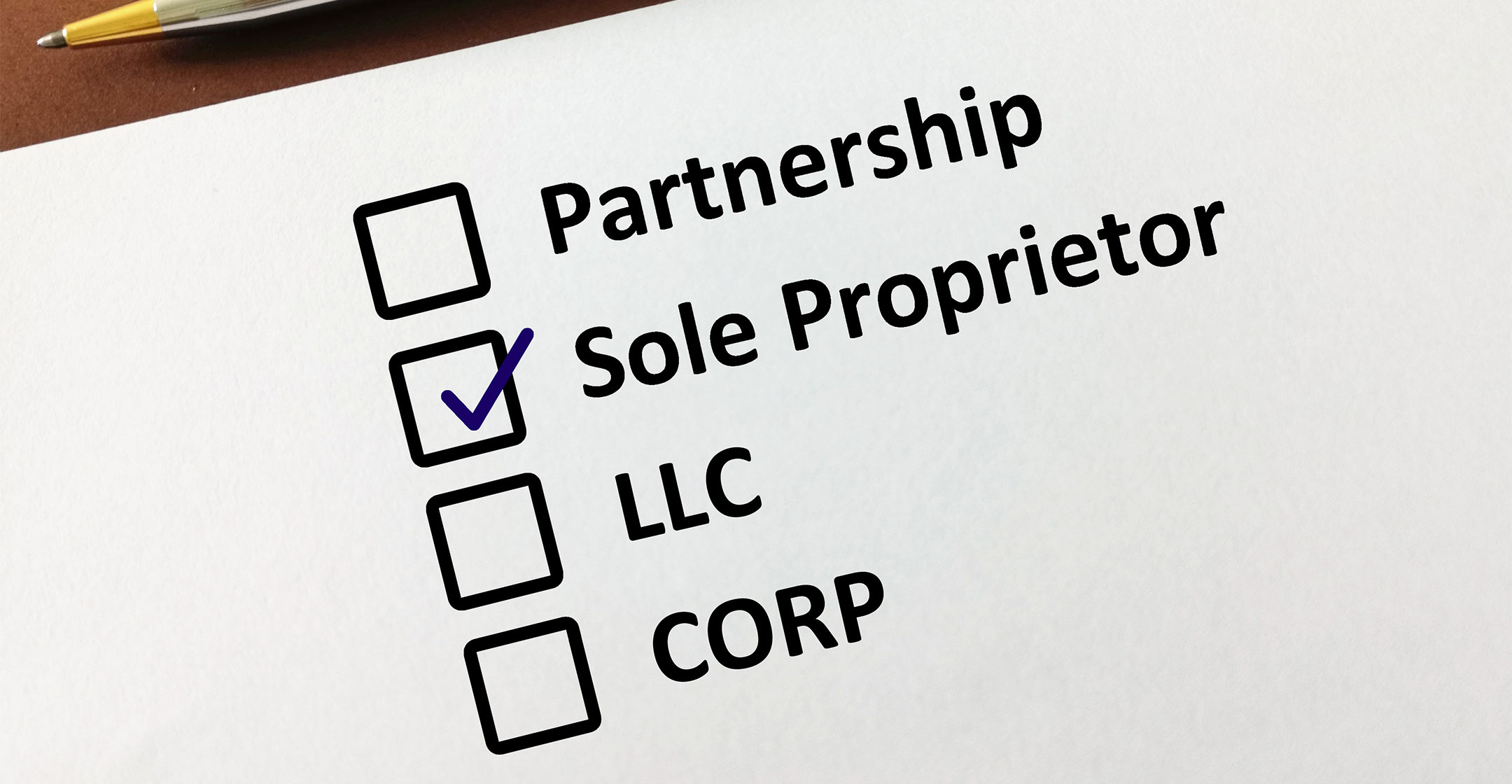26 CFR § 1.856-10 - Definition of real property.
- Table of Popular Names
(a) In general. This section provides definitions for purposes of part II, subchapter M, chapter 1 of the Internal Revenue Code . Paragraph (b) of this section defines real property , which includes land as defined under paragraph (c) of this section and improvements to land as defined under paragraph (d) of this section. Improvements to land include inherently permanent structures as defined under paragraph (d)(2) of this section and structural components of inherently permanent structures as defined under paragraph (d)(3) of this section. Paragraph (e) of this section provides rules for determining whether an item is a distinct asset for purposes of applying the definitions in paragraphs (b) , (c) , and (d) of this section. Paragraph (f) of this section identifies intangible assets that are real property or interests in real property . Paragraph (g) of this section provides examples illustrating the rules of paragraphs (b) through (f) of this section. Paragraph (h) of this section provides the effective/applicability date for this section.
(b) Real property. The term real property means land and improvements to land . Local law definitions are not controlling for purposes of determining the meaning of the term real property .
(c) Land. Land includes water and air space superjacent to land and natural products and deposits that are unsevered from the land . Natural products and deposits, such as crops, water, ores, and minerals, cease to be real property when they are severed, extracted, or removed from the land . The storage of severed or extracted natural products or deposits, such as crops, water, ores, and minerals, in or upon real property does not cause the stored property to be recharacterized as real property .
(d) Improvements to land —(1) In general. The term improvements to land means inherently permanent structures and their structural components .
(2) Inherently permanent structure —(i) In general. The term inherently permanent structure means any permanently affixed building or other permanently affixed structure. Affixation may be to land or to another inherently permanent structure and may be by weight alone. If the affixation is reasonably expected to last indefinitely based on all the facts and circumstances , the affixation is considered permanent. A distinct asset that serves an active function, such as an item of machinery or equipment, is not a building or other inherently permanent structure .
(ii) Building —(A) In general. A building encloses a space within its walls and is covered by a roof.
(B) Types of buildings. Buildings include the following distinct assets if permanently affixed: Houses; apartments; hotels; motels; enclosed stadiums and arenas; enclosed shopping malls; factory and office buildings; warehouses; barns; enclosed garages; enclosed transportation stations and terminals; and stores.
(iii) Other inherently permanent structures —(A) In general. Other inherently permanent structures serve a passive function, such as to contain, support , shelter, cover, protect, or provide a conduit or a route, and do not serve an active function, such as to manufacture, create, produce, convert, or transport.
(B) Types of other inherently permanent structures. Other inherently permanent structures include the following distinct assets if permanently affixed: Microwave transmission, cell, broadcast, and electrical transmission towers; telephone poles; parking facilities; bridges; tunnels; roadbeds; railroad tracks; transmission lines; pipelines; fences; in-ground swimming pools; offshore drilling platforms; storage structures such as silos and oil and gas storage tanks; and stationary wharves and docks. Other inherently permanent structures also include outdoor advertising displays for which an election has been properly made under section 1033(g)(3).
(iv) Facts and circumstances determination. If a distinct asset (within the meaning of paragraph (e) of this section) does not serve an active function as described in paragraph (d)(2)(iii)(A) of this section and is not otherwise listed in paragraph (d)(2)(ii)(B) or (d)(2)(iii)(B) of this section or in guidance published in the Internal Revenue Bulletin (see § 601.601(d)(2)(ii) of this chapter), the determination of whether that asset is an inherently permanent structure is based on all the facts and circumstances . In particular, the following factors must be taken into account:
(A) The manner in which the distinct asset is affixed to real property ;
(B) Whether the distinct asset is designed to be removed or to remain in place indefinitely;
(C) The damage that removal of the distinct asset would cause to the item itself or to the real property to which it is affixed;
(D) Any circumstances that suggest the expected period of affixation is not indefinite (for example , a lease that requires or permits removal of the distinct asset upon the expiration of the lease); and
(E) The time and expense required to move the distinct asset .
(3) Structural components —(i) In general. The term structural component means any distinct asset (within the meaning of paragraph (e) of this section) that is a constituent part of and integrated into an inherently permanent structure , serves the inherently permanent structure in its passive function, and, even if capable of producing income other than consideration for the use or occupancy of space, does not produce or contribute to the production of such income . If interconnected assets work together to serve an inherently permanent structure with a utility-like function (for example , systems that provide a building with electricity, heat, or water), the assets are analyzed together as one distinct asset that may be a structural component . A structural component may qualify as real property only if the real estate investment trust (REIT) holds its interest in the structural component together with a real property interest in the space in the inherently permanent structure served by the structural component . A mortgage secured by a structural component is a real estate asset only if the mortgage is also secured by a real property interest in the inherently permanent structure served by the structural component . If a distinct asset is customized in connection with the rental of space in or on an inherently permanent structure to which the asset relates, the customization does not affect whether the distinct asset is a structural component .
(ii) Types of structural components. Structural components include the following distinct assets and systems if integrated into the inherently permanent structure and held together with a real property interest in the space in the inherently permanent structure served by that distinct asset or system: Wiring; plumbing systems; central heating and air-conditioning systems; elevators or escalators; walls; floors ; ceilings; permanent coverings of walls, floors , and ceilings; windows; doors; insulation; chimneys; fire suppression systems, such as sprinkler systems and fire alarms; fire escapes; central refrigeration systems; security systems; and humidity control systems.
(iii) Facts and circumstances determination. If an interest in a distinct asset (within the meaning of paragraph (e) of this section) is held together with a real property interest in the space in the inherently permanent structure served by that distinct asset and that asset is not otherwise listed in paragraph (d)(3)(ii) of this section or in guidance published in the Internal Revenue Bulletin (see § 601.601(d)(2)(ii) of this chapter), the determination of whether that asset is a structural component is based on all the facts and circumstances . In particular, the following factors must be taken into account:
(A) The manner, time, and expense of installing and removing the distinct asset ;
(B) Whether the distinct asset is designed to be moved;
(C) The damage that removal of the distinct asset would cause to the item itself or to the inherently permanent structure to which it is affixed;
(D) Whether the distinct asset serves a utility-like function with respect to the inherently permanent structure ;
(E) Whether the distinct asset serves the inherently permanent structure in its passive function;
(F) Whether the distinct asset produces income from consideration for the use or occupancy of space in or upon the inherently permanent structure ;
(G) Whether the distinct asset is installed during construction of the inherently permanent structure ; and
(H) Whether the distinct asset will remain if the tenant vacates the premises.
(e) Distinct asset —(1) In general. A distinct asset is analyzed separately from any other assets to which the asset relates to determine if the asset is real property , whether as land , an inherently permanent structure , or a structural component of an inherently permanent structure .
(2) Facts and circumstances. The determination of whether a particular separately identifiable item of property is a distinct asset is based on all the facts and circumstances . In particular, the following factors must be taken into account:
(i) Whether the item is customarily sold or acquired as a single unit rather than as a component part of a larger asset;
(ii) Whether the item can be separated from a larger asset, and if so, the cost of separating the item from the larger asset;
(iii) Whether the item is commonly viewed as serving a useful function independent of a larger asset of which it is a part; and
(iv) Whether separating the item from a larger asset of which it is a part impairs the functionality of the larger asset.
(f) Intangible assets —(1) In general. To the extent that an intangible asset, including an intangible asset established under generally accepted accounting principles (GAAP) as a result of an acquisition of real property or an interest in real property , derives its value from real property or an interest in real property , is inseparable from that real property or interest in real property , and does not produce or contribute to the production of income other than consideration for the use or occupancy of space, the intangible asset is real property or an interest in real property .
(2) Licenses and permits. A license, permit, or other similar right that is solely for the use, enjoyment, or occupation of land or an inherently permanent structure and that is in the nature of a leasehold or easement generally is an interest in real property . A license or permit to engage in or operate a business is not real property or an interest in real property if the license or permit produces or contributes to the production of income other than consideration for the use or occupancy of space.
(g) Examples. The following examples demonstrate the rules of this section. Examples 1 and 2 illustrate the definition of land as provided in paragraph (c) of this section. Examples 3 through 10 illustrate the definition of improvements to land as provided in paragraph (d) of this section. Finally, Examples 11 through 13 illustrate whether certain intangible assets are real property or interests in real property as provided in paragraph (f) of this section.
(ii) The sculpture is not an asset listed in paragraph (d)(2)(iii)(B) of this section, and, therefore, the sculpture is an asset that must be analyzed to determine whether it is an inherently permanent structure using the factors provided in paragraph (d)(2)(iv) of this section. The sculpture—
(A) Is permanently affixed to the building by supports embedded in the building 's foundation;
(B) Is not designed to be removed and is designed to remain in place indefinitely;
(C) Would be damaged if removed and would damage the building to which it is affixed;
(D) Will remain affixed to the building after any tenant vacates the premises and will remain affixed to the building indefinitely; and
(E) Would require significant time and expense to move.
(iii) The factors described in this paragraph (g) Example 3 (ii)(A) through (E) all support the conclusion that the sculpture is an inherently permanent structure within the meaning of paragraph (d)(2) of this section and, therefore, is real property .
(ii) The bus shelters are not permanently affixed enclosed transportation stations or terminals and do not otherwise meet the definition of a building in paragraph (d)(2)(ii) of this section nor are they listed as types of other inherently permanent structures in paragraph (d)(2)(iii)(B) of this section. Therefore, the bus shelters must be analyzed to determine whether they are inherently permanent structures using the factors provided in paragraph (d)(2)(iv) of this section. The bus shelters—
(A) Are not permanently affixed to the land or an inherently permanent structure ;
(B) Are designed to be removed and are not designed to remain in place indefinitely;
(C) Would not be damaged if removed and would not damage the sidewalks to which they are affixed;
(D) Will not remain affixed after the local transit authority vacates the site and will not remain affixed indefinitely; and
(E) Would not require significant time and expense to move.
(iii) The factors described in this paragraph (g) Example 4 (ii)(A) through (E) all support the conclusion that the bus shelters are not inherently permanent structures within the meaning of paragraph (d)(2) of this section. Although the bus shelters serve a passive function of sheltering, the bus shelters are not permanently affixed, which means the bus shelters are not inherently permanent structures within the meaning of paragraph (d)(2) of this section and, therefore, are not real property .
(ii) Walls and central refrigeration systems are listed as structural components in paragraph (d)(3)(ii) of this section and, therefore, are real property . The customization of the freezer walls does not affect their qualification as structural components of REIT E's Cold Storage Warehouse within the meaning of paragraph (d)(3) of this section. Therefore, the freezer walls and central refrigeration system are structural components of REIT E's Cold Storage Warehouse.
(ii) The central heating and air-conditioning system, integrated security system, fire suppression system, and humidity control system are listed as structural components in paragraph (d)(3)(ii) of this section and, therefore, are real property . The customization of these Systems does not affect the qualification of these Systems as structural components of REIT F's building within the meaning of paragraph (d)(3) of this section. Therefore, these Systems are structural components of REIT F's building .
(iii) In addition to wiring and flooring, which are listed as structural components in paragraph (d)(3)(ii) of this section and, therefore, are real property , the Electrical System and telecommunication infrastructure system include equipment used to ensure that the tenant is provided with uninterruptable, stable power and telecommunication services . The Electrical System and telecommunication infrastructure system are not listed in paragraph (d)(3)(ii) of this section, and, therefore, they must be analyzed to determine whether they are structural components of the building using the factors provided in paragraph (d)(3)(iii) of this section. The Electrical System and telecommunication infrastructure system—
(A) Are embedded within the walls and floors of the building and would be costly to remove;
(B) Are not designed to be moved and are designed specifically for the particular building of which they are a part;
(C) Would not be significantly damaged upon removal and, although removing them would damage the walls and floors in which they are embedded, their removal would not significantly damage the building ;
(D) Serve a utility-like function with respect to the building ;
(E) Serve the building in its passive functions of containing, sheltering, and protecting computer servers;
(F) Produce income as consideration for the use or occupancy of space within the building ;
(G) Were installed during construction of the building ; and
(H) Will remain in place when the tenant vacates the premises.
(iv) The factors described in this paragraph (g) Example 6 (iii)(A), (B) , and (D) through (H) all support the conclusion that the Electrical System and telecommunication infrastructure system are structural components of REIT F's building within the meaning of paragraph (d)(3) of this section and, therefore, are real property . The factor described in this paragraph (g) Example 6 (iii)(C) would support a conclusion that the Electrical System and telecommunication infrastructure system are not structural components . However this factor does not outweigh the factors supporting the conclusion that the Electric System and telecommunication infrastructure system are structural components .
(ii) Depending on the needs of a new tenant, the Conventional Partition System may remain in place when a tenant vacates the premises. The Conventional Partition System is integrated into the office building and is designed and constructed to remain in areas not subject to reconfiguration or expansion. The Conventional Partition System can be removed only by demolition, and, once removed, neither the Conventional Partition System nor its components can be reused. Removal of the Conventional Partition System causes substantial damage to the Conventional Partition System itself but does not cause substantial damage to the building .
(iii) Modular Partition Systems are typically removed when a tenant vacates the premises. Modular Partition Systems are not designed or constructed to remain permanently in place. Modular Partition Systems are designed and constructed to be movable. Each Modular Partition System can be readily removed, remains in substantially the same condition as before, and can be reused. Removal of a Modular Partition System does not cause any substantial damage to the Modular Partition System itself or to the building . The Modular Partition System may be moved to accommodate the reconfigurations of the interior space within the office building for various tenants that occupy the building .
(iv) The Conventional Partition System is comprised of walls that are integrated into an inherently permanent structure , and thus are listed as structural components in paragraph (d)(3)(ii) of this section. The Conventional Partition System, therefore, is real property .
(v) The Modular Partition System is not integrated into the building and, therefore, is not listed in paragraph (d)(3)(ii) of this section. Thus, the Modular Partition System must be analyzed to determine whether it is a structural component using the factors provided in paragraph (d)(3)(iii) of this section. The Modular Partition System—
(A) Is installed and removed quickly and with little expense;
(B) Is designed to be moved and is not designed specifically for the particular building of which it is a part;
(C) Is not damaged, and the building is not damaged, upon its removal;
(D) Does not serve a utility-like function with respect to the building ;
(E) Serves the building in its passive functions of containing and protecting the tenants' assets;
(F) Produces income only as consideration for the use or occupancy of space within the building ;
(G) Was not installed during construction of the building ; and
(H) Will not remain in place when a tenant vacates the premises.
(vi) The factors described in this paragraph (g) Example 7 (v)(A) through (D) , (G) and (H) all support the conclusion that the Modular Partition System is not a structural component of REIT G's building within the meaning of paragraph (d)(3) of this section and, therefore, is not real property . The factors described in this paragraph (g) Example 7 (v)(E) and (F) would support a conclusion that the Modular Partition System is a structural component . These factors, however, do not outweigh the factors supporting the conclusion that the Modular Partition System is not a structural component .
(ii) REIT H's PV Modules, mounts, and exit wire are each separately identifiable items. Separation from a mount does not affect the ability of a PV Module to convert photons to electricity. Separation from the equipment to which it is attached does not affect the ability of the exit wire to transmit electricity to the electrical power grid. The types of PV Modules and exit wire that REIT H owns are each customarily sold or acquired as single units. Removal of the PV Modules from the mounts that support them does not damage the function of the mounts as support structures and removal is not costly. The PV Modules serve the active function of converting photons to electricity. Disconnecting the exit wire from the equipment to which it is attached does not damage the function of that equipment, and the disconnection is not costly. The PV Modules, mounts, and exit wire are each distinct assets within the meaning of paragraph (e) of this section.
(iii) The land is real property as defined in paragraph (c) of this section.
(iv) The mounts are designed and constructed to remain in place indefinitely, and they have a passive function of supporting the PV Modules. The mounts are not listed in paragraph (d)(2)(iii)(B) of this section, and, therefore, the mounts are assets that must be analyzed to determine whether they are inherently permanent structures using the factors provided in paragraph (d)(2)(iv) of this section. The mounts—
(A) Are permanently affixed to the land through the concrete foundations or molded concrete anchors (which are part of the mounts);
(B) Are not designed to be removed and are designed to remain in place indefinitely;
(C) Would be damaged if removed;
(D) Will remain affixed to the land after the tenant vacates the premises and will remain affixed to the land indefinitely; and
(v) The factors described in this paragraph (g) Example 8 (iv)(A) through (E) all support the conclusion that the mounts are inherently permanent structures within the meaning of paragraph (d)(2) of this section and, therefore, are real property .
(vi) The PV Modules convert solar photons into electricity that is transmitted through an electrical power grid for sale to third parties. The conversion is an active function. Thus, the PV Modules are items of machinery or equipment and therefore are not inherently permanent structures within the meaning of paragraph (d)(2) of this section and, so, are not real property . The PV Modules do not serve the mounts in their passive function of providing support ; instead, the PV Modules produce electricity for sale to third parties, which is income other than consideration for the use or occupancy of space. Thus, the PV Modules are not structural components of REIT H's mounts within the meaning of paragraph (d)(3) of this section and, therefore, are not real property .
(vii) The exit wire is buried under the ground and transmits the electricity produced by the PV Modules to the electrical power grid. The exit wire was installed during construction of the solar energy site and is designed to remain permanently in place. The exit wire is permanently affixed and is a transmission line, which is listed as an inherently permanent structure in paragraph (d)(2)(iii)(B) of this section. Therefore, the exit wire is real property .
(ii) With the exception of the occasional transfers of excess electricity to a utility company, the Solar Energy Site Assets serve the office building to which they are adjacent, and, therefore, the Solar Energy Site Assets are analyzed to determine whether they are a structural component using the factors provided in paragraph (d)(3)(iii) of this section. The Solar Energy Site Assets—
(A) Are expensive and time consuming to install and remove;
(B) Were designed with the size and specifications needed to serve only the office building ;
(C) Will be damaged, but will not cause damage to the office building , upon removal;
(D) Serve a utility-like function with respect to the office building ;
(E) Serve the office building in its passive functions of containing, sheltering, and protecting the tenant and the tenant's assets;
(F) Produce income from consideration for the use or occupancy of space within the office building ;
(G) Were not installed during construction of the office building ; and
(iii) The factors described in this paragraph (g) Example 9 (ii)(A) through (C) (in part), (ii)(D) through (F) , and (ii)(H) all support the conclusion that the Solar Energy Site Assets are a structural component of REIT I's office building within the meaning of paragraph (d)(3) of this section and, therefore, are real property . The factors described in this paragraph (g) Example 9 (ii)(C) (in part) and (ii)(G) would support a conclusion that the Solar Energy Site Assets are not a structural component , but these factors do not outweigh the factors supporting the conclusion that the Solar Energy Site Assets are a structural component .
(iv) The result in this Example 9 would not change if, instead of the Solar Energy Site Assets, solar shingles were used as the roof of REIT I's office building . Solar shingles are roofing shingles like those commonly used for residential housing, except that they contain built-in PV modules. The solar shingle installation was specifically designed and constructed to serve only the needs of REIT I's office building , and the solar shingles were installed as a structural component to provide solar energy to REIT I's office building (although REIT I's tenant occasionally transfers excess electricity produced by the solar shingles to a utility company). The analysis of the application of the factors provided in paragraph (d)(3)(ii) of this section would be similar to the analysis of the application of the factors to the Solar Energy Site Assets in this paragraph (g) Example 9 (ii) and (iii) .
(ii) The pipelines are permanently affixed and are listed as other inherently permanent structures in paragraph (d)(2)(iii)(B) of this section. Therefore, the pipelines are real property .
(iii) Isolation valves and vents are placed at regular intervals along the pipelines to isolate and evacuate sections of the pipelines in case there is need for a shut-down or maintenance of the pipelines. Pressure control and relief valves are installed at regular intervals along the pipelines to provide overpressure protection . The isolation valves and vents and pressure control and relief valves are not listed in paragraph (d)(3)(ii) and, therefore, must be analyzed to determine whether they are structural components using the factors provided in paragraph (d)(3)(iii) of this section. The isolation valves and vents and pressure control and relief valves—
(A) Are time consuming and expensive to install and remove from the pipelines;
(B) Are designed specifically for the particular pipelines for which they are a part;
(C) Will sustain damage and will damage the pipelines if removed;
(D) Do not serve a utility-like function with respect to the pipelines;
(E) Serve the pipelines in their passive function of providing a conduit for natural gas ;
(F) Produce income only from consideration for the use or occupancy of space within the pipelines;
(G) Were installed during construction of the pipelines; and
(iv) The factors described in this paragraph (g) Example 10 (iii)(A) through (C) and (iii)(E) through (H) support the conclusion that the isolation valves and vents and pressure control and relief valves are structural components of REIT J's pipelines within the meaning of paragraph (d)(3) of this section and, therefore, are real property . The factor described in this paragraph (g) Example 10 (iii)(D) would support a conclusion that the isolation valves and vents and pressure control and relief valves are not structural components , but this factor does not outweigh the factors that support the conclusion that the isolation valves and vents and pressure control and relief valves are structural components .
(v) Meters are used to measure the natural gas passing into or out of the pipeline transmission system for purposes of determining the end users' consumption. Over long distances, pressure is lost due to friction in the pipeline transmission system. Compressors are required to add pressure to transport natural gas through the entirety of the pipeline transmission system. The meters and compressors do not serve the pipelines in their passive function of providing a conduit for the natural gas , and are used in connection with the production of income from the sale and transportation of natural gas , rather than as consideration for the use or occupancy of space within the pipelines. The meters and compressors are not structural components within the meaning of paragraph (d)(3) of this section and, therefore, are not real property .
(h) Effective/applicability date. The rules of this section apply for taxable years beginning after August 31, 2016. For purposes of applying the first sentence of the flush language of section 856(c)(4) to a quarter in a taxable year that begins after August 31, 2016, the rules of this section apply in determining whether the taxpayer met the requirements of section 856(c)(4) at the close of prior quarters. Taxpayers may rely on this section for quarters that end before the applicability date .
- Internal Revenue Code

The Guide to Floating Homes and Houseboats
Here's what you need to know about foregoing life on land for a house that floats.
The Guide to Floating Homes

Getty Images
Floating houses are frequently sold along with their slip, and in many ways sell like a typical house.
Waterfront property certainly has its appeal. Access to the river, lake or ocean can provide endless enjoyment, especially if you're a person who likes getting out on the water. But have you considered living on the water itself?
There are a few options for making your next home on a boat or along a dock, from houseboats to a yacht or sailboat to a more permanently fixed floating house. Here's what you need to know before buying a floating home or houseboat.
What Is a Floating House?
A floating home is most often used to describe a house on the water that doesn't have a motor or navigation system, commonly docked among other floating homes. The hull is often made of concrete. Because they're not mobile under their own power, floating homes typically stay in one place long term and are permanently attached to electrical, water and sewer lines.
Floating homes "essentially are barges that houses are built into," says Scott Collins, who serves as public relations co-chair with his partner, Arleen Ma, for Floating Homes Association Inc. in Sausalito, California. The association located in Richardson Bay, which is north of San Francisco , is made up of a community of roughly 400 floating homes.
What Is a Houseboat?
Houseboats often have a more house-like look than a sailboat or yacht, with a rectangular structure to maximize space indoors. The hull is more often made of fiberglass, steel or aluminum, and the motor and navigation systems mean a houseboat can travel on its own and be hooked up to side systems in a marina slip for access to power and water.
However, you're less likely to use a houseboat for day trips down the river or out onto the lake. Bill Drage, principal owner of houseboat manufacturing company East Coast Houseboats, says that most of his clients plan to keep their houseboat dockside at all times.
The size and shape of a houseboat makes it harder to direct than a yacht or sailboat – Drage says one client "said it was like moving a refrigerator across the water."
Other Boats as Residences
If you prefer the look of a more traditional boat to a houseboat or floating home, you can choose to live on just about anything you can afford as long as it's comfortable. Yachts, trawlers and some sailboats have enough space to live below deck.
If you're living on a powered boat or boathouse and primarily staying in a marina where you have a slip, know the marina's rules before claiming your boat as your permanent residence. Some marinas have a maximum number of nights allowed on board, while others are more amenable to full-time residents.
How to Buy a Floating Home or Houseboat
Floating homes are frequently sold along with their slip, and in many ways sell like a typical house. Real estate agents will list the property on the market like they would any home on land. In cities where floating house communities are established, you can often find floating home listings on Zillow, realtor.com or other consumer-facing real estate information sites.
However, a floating home cannot be purchased with a traditional mortgage . Floating home loans do exist and are more commonly offered by local banks and credit unions where floating home communities exist than a national bank or lender. Houseboat manufacturers, floating home builders and floating home communities can be a helpful resource for researching your loan options.
Financing a houseboat is the same as financing any other kind of boat, and it is considered a personal property loan.
If you're looking for a houseboat or another type of boat you can convert into your new home, websites for boat sales, houseboat and boat manufacturers and boat dealers are the best places to go.
How Much Does It Cost To Buy a Floating House or Houseboat?
Like with buying a house, floating homes and houseboats vary widely in cost to buy one. For a new houseboat from East Coast Houseboats, Drage says the range starts with a one-bedroom, 22-foot houseboat that starts under $90,000. At the higher end of the spectrum, a two-story houseboat that's 50 feet long and 16 feet wide goes for around $350,000.
Existing floating homes and houseboats on the market can be less than $100,000 and reach $1 million, depending on size, style, condition and location. If a slip comes included, you can naturally expect to pay more.
Floating Houses Have Additional Fees
Don't forget to factor in the monthly cost of keeping a slip or berth on the dock. Collins and Ma report berth fees to be a part of the Floating Homes Association in Richardson Bay can be hefty. "They can be expensive – they're over $1,000 a month. But the property taxes are not set up on the land, only on the dwelling. So your property taxes are less, but your berth fee is more," Collins says.
If you're living in a marina that isn't an established residential community, you may not be required to pay property taxes at all. Be sure to inquire with the marina as you calculate your bottom line.
What to Know About Maintaining a Floating House Houseboat
The amount of maintenance you'll find on a floating home or houseboat is similar to what you'll find in most homes, though how you maintain it may be a bit different.
When it comes to systems that don't operate exactly the same as a home on land, a person with experience working on floating houses is ideal. "Plumbing and electrical and painting – you really should have someone that specializes (in doing the work)," Collins says. In a floating home community, you're likely to find that those specialists are your neighbors.
With so much exposure to water, expect a bit more rust and warping as a result. "Wood and metal deteriorate literally in front of your eyes," Collins says.
Phyllis and Guy Biederman have been residents of Floating Homes Association Inc. on Richardson Bay for about nine years, and they note that regular maintenance issues would be most closely in tune with having a seaside home, because of the similar levels of exposure to salt water and weather coming off the water.
Because many floating homes have a concrete hull, it's important to check on the hull's condition and be diligent to repair any cracks that form. "It would be kind of like having a cracked foundation," says Guy Biederman, who teaches creative writing.
"Except houseboats can sink," adds Phyllis Biederman, a nurse.
Tips for Living on the Water
Here are a few additional tips to keep in mind before you forego life on land for a floating home or houseboat:
Get to know the neighbors. Especially if you're living in a community of houseboats or floating homes, you're likely to recognize your neighbors quickly, and even more likely to become close.
"The minute we moved here we received welcome gifts like flowers, cookies, books," Ma says of the Floating Homes Association community. "I thought, 'This would never happen in the city.'"
Less is more. Like with living in a tiny house, your storage on a floating home, houseboat or other kind of residence on the water will leave you with minimal storage space. To avoid the added cost of keeping a storage unit on land, get strict about how much you accumulate.
"Any time something comes into your house, something has to come out of your house," Collins says.
Prepare for plumbing inconvenience. Even if you're living dockside, plumbing on a floating home doesn't work the same as it does for a house on land – a pump that uses electricity is a key part of getting waste out of a holding tank that's part of your home and to the line that goes to the sewer.
"If the power goes out, which it can do quite a bit in the winter, you don't flush your toilet and you don't use your water," Guy Biederman says.
Try it out first. Life in a floating home isn't for everyone. Make sure it's a good fit by visiting friends who live on the water or sign up for a tour of a floating home community. Additionally, Drage says about 80% of his clientele right now are people purchasing houseboats to use as short-term rentals through services like Airbnb or VRBO, which can be an easy opportunity to try out dockside life for a couple nights – or even a couple weeks.
The Best Places to Live By the Beach

Compare Top Mortgage Lenders
Advertiser Disclosure
Tags: real estate , housing , moving , water
You May Also Like
Home renovation mistakes to avoid.
Liz Brumer-Smith March 19, 2024

What is a Kitchen Triangle?
Aly J. Yale March 19, 2024

The Best Places to Retire in Florida
Josephine Nesbit March 18, 2024

What the Realtor Lawsuit Means for You
Aly J. Yale March 15, 2024

Should You Pay for Great Schools?
Maurie Backman March 14, 2024

What Can You Buy for $3,500 a Month?
Kristi Waterworth March 12, 2024

The Guide to a Real Estate Bidding War
Steven Gottlieb March 11, 2024

Pros and Cons of an HOA
Geoff Williams March 8, 2024

Is a Housing Market Correction Coming?
Kristi Waterworth and Devon Thorsby March 7, 2024

5 Outdated Design Trends Aging Your Home
Liz Brumer-Smith March 6, 2024

What to Do If Your Pipes Freeze
Josephine Nesbit March 4, 2024

5 Improvements That Help a Home's Value
Liz Brumer-Smith March 4, 2024

Entertain Better with a Wet Bar
Karen Dybis March 1, 2024

HOA Changes To Know About in 2024
Liz Brumer-Smith Feb. 29, 2024

Tips for Copying an Open Concept Look
Karen Dybis Feb. 28, 2024

Are You Too Young to Buy a House?
Geoff Williams Feb. 27, 2024

How to Maintain Your Furnace
Josephine Nesbit Feb. 26, 2024

Austin Housing Market Forecast
Josephine Nesbit Feb. 23, 2024

The 5 Worst Bugs For Your Home
Geoff Williams Feb. 22, 2024

When Will the Housing Market Crash?
Patrick S. Duffy Feb. 21, 2024

Marina Floating Docks – Real or Personal Property? Part 1 of 3
Comments are closed, posted by john simpson.
This question has arisen many times with marina tax appeal cases I have been involved in. Today it came to me in the form of an email, so I figured it’s high time I put my thoughts together on the topic.
The fundamental problem is that there is no universal treatment by government officials. One jurisdiction treats them as real property and the one next door does not. When there is no “official” word on how a jurisdiction is to treat them, the presumption is that they are real property because marinas with fixed docks were assessed in this manner for decades prior to the advent of floating docks. “It’s how we’ve always done it” is the usual response in these cases.
“I must have missed the part where that was MY problem”
Normal 0 false false false EN-US X-NONE X-NONE
The question arises as to the classification of floating docks as personal property or real property.The distinction is important because of recent tax changes making the tax rates on personal property substantially lower than real property.
We want to claim floating docks as personal property and our justification is that the IRS has determined that floating docks are equipment, not real property because they are not fixed and can be moved and are easily moved, etc.
- Ownership of the bottom lands, the land underneath the water that comprises the basin, complicates the issue. The docks are affixed in some manner to piles that are driven into the sediment. In many lakes the basin land is owned by the property owner. In others it’s owned by the municipality. In Lake Michigan it’s owned by the State of Michigan. The floating personal property has some method of being affixed to the real estate, so does that make it a fixture?
- Depreciation schedules for personal and real property are quite different.
- The IRS has ruled that floating docks are personal property. So when a jurisdiction says it’s real property there’s an obvious disconnect. ‘Seems like someone is wrong and no matter which, the property owner doesn’t receive the full benefit of any one classification.
The IRS Has Spoken
So I did a little research and stumbled across this little gem from the U.S. Court of Appeals (an appeal from the U.S. District Court in Massachusetts):
Case law as to whether floating docks are “real property” is not uniform–which is unsurprising because the issue arises under various statutes and in different contexts (sales, taxes, condemnation). A leading federal tax decision says that floating docks are not real property, M organ v. Comm’r of Internal Revenue , 52 T.C. 478, 483 (Tax Ct. 1969); see also Rev. Rul. 75-178, 1975-1 C.B. 9, 1975 WL 34655. No Massachusetts case involving a floating dock has been cited to us, and case law in other jurisdictions is divided.
In the next part of this series, we’ll explore what tests can be used to determine if floating docks are personal property.
Related Posts
- John Simpson Wins Big Marina Tax Appeal Case!
- Fixed Docks versus Floating Docks
- Florida Tax Appeal Laws are Getting it Right!
- Marina Floating Docks – Real or Personal Property? Part 3 of 3
Comments are closed.

Is a Houseboat Considered Real Estate? Here’s What You Need to Know

Are you dreaming of owning your own floating home? If so, you may be wondering if a houseboat is considered real estate.
Well, the answer is yes and there are many potential benefits of owning a houseboat.
But before you buy, its important to understand what a houseboat is and how to finance and insure it.
Additionally, there are certain regulations to be aware of and different types of houseboats available.
In this article, we’ll cover all this and more, so you can make an informed decision on whether owning a houseboat is right for you.
Table of Contents
Short Answer
Yes, a houseboat is considered real estate.
It is considered a type of movable property, but it is still an asset that is owned and can be bought and sold in the real estate market.
Most houseboats are registered with the Department of Motor Vehicles (DMV) as a vehicle, but it is still considered real estate and is subject to property taxes in many areas.
What is a Houseboat?
A houseboat is a type of vessel designed for living onboard, typically for long-term residential or recreational use.
While the term is often associated with riverboats, houseboats can be found in a variety of water-based locations such as lakes, oceans, and marinas.
As a type of real estate, houseboats can be used as a primary residence, a vacation home, or a commercial entity.
Houseboats vary in size and structure, with some being as small as a few feet in length, while others can be upwards of a hundred feet in length and include multiple rooms, bathrooms, and other amenities.
Unlike traditional boats, houseboats are often equipped with plumbing, air conditioning, and other features that are more typical of a home than a vessel.
Houseboats are typically powered by electricity, diesel fuel, or gasoline, but some models may also be powered by solar energy or wind.
Houseboats can be a great option for those looking for an alternative to traditional real estate.
They offer a unique living experience that is often much more affordable than other types of real estate and require less maintenance than a traditional home.
Additionally, houseboats can be moved from one location to another, providing an added level of flexibility.
Is a Houseboat Considered Real Estate?

When it comes to real estate, its often thought of as a traditional property like a house or a condo.
However, there is a growing trend towards owning and living in houseboats, which are a type of property that is quickly gaining in popularity.
So, is a houseboat considered real estate? The answer is yeshouseboats are a form of real estate, although they are not typically seen as a traditional type of real estate.
Houseboats are defined as vessels that are permanently moored, meaning they are docked in a marina, on a river, or on the ocean, and they may be used for residential, recreational, or commercial purposes.
Owners of houseboats are typically responsible for the same taxes and regulations that apply to other real estate properties, such as property tax and insurance.
Unlike traditional real estate, houseboats are not typically seen as an investment property.
While there is potential for appreciation in houseboat values, its important to note that houseboats are generally considered to be a lifestyle choice rather than an investment.
As such, houseboats are typically not used as a source of income or to increase ones net worth.
When considering whether or not a houseboat is considered real estate, its important to understand the local laws and regulations that apply to houseboats.
In some areas, houseboats may be subject to additional zoning or occupancy restrictions, and in some cases, houseboats may require special permits.
Its also important to note that houseboats are not typically considered to be a primary residence and may not be used to access certain tax benefits.
Overall, houseboats are a form of real estate, although they are not typically seen as a traditional type of real estate.
Houseboats are an increasingly popular form of real estate, as they provide a unique living experience.
However, its important to understand the local laws and regulations that apply to houseboats and to be aware of the potential limitations of houseboats as an investment property.
Benefits of Owning a Houseboat
When it comes to owning a houseboat, there are a number of great benefits that make this form of real estate highly attractive to many.
For starters, houseboats are typically much more affordable than traditional real estate properties, making them an ideal option for those who are looking to purchase a home on a tight budget.
Additionally, houseboats offer a unique living experience that many find appealing.
They allow for a life of relaxation and adventure, as one can explore different ports and destinations, and even live in a different location each night.
Furthermore, houseboats are often less expensive to maintain than traditional real estate properties, as they require fewer repairs and upgrades.
They also typically have lower insurance costs, as they are typically docked and not exposed to potential damage from the elements.
Lastly, owning a houseboat can provide a sense of freedom and independence, as the owner is not bound to a particular location or set of rules.
Houseboat Regulations

When it comes to houseboats, regulations and laws can vary from place to place.
Generally speaking, houseboats are subject to the same regulations and laws as other types of real estate.
For example, houseboat owners must pay property taxes, abide by zoning regulations, maintain insurance, and adhere to regulations regarding the waterway they are docked in.
In certain areas, houseboats may be required to be registered with the local government and follow specific safety rules.
In some coastal areas, houseboats may be subject to additional regulations due to their proximity to the ocean.
For instance, some areas may require houseboats to be registered as commercial vessels and meet certain standards for safety and maintenance.
In addition, houseboats may be subject to local laws regarding their docking location.
In some cases, houseboat owners may need to obtain a permit to dock their boat in certain areas.
Additionally, they may need to abide by rules regarding noise, speed, and other activities while on the water.
Finally, houseboat owners should be aware of any regulations or laws in the area that may affect the use of their houseboat.
For example, certain areas may have restrictions on the type of recreational activities that can be done on a houseboat.
Additionally, some areas may have laws that limit the number of guests that can stay on board a houseboat at one time.
Types of Houseboats
When it comes to houseboats, there are a variety of types available, each with its own unique features and amenities.
Depending on the type of houseboat you choose, you may find yourself living on a small, mobile houseboat, a luxury yacht, or something in between.
Small, mobile houseboats are the most common type of houseboat, and they typically feature a deck, a small kitchen and living area, and one or two bedrooms.
These types of houseboats are great for those who want to experience the convenience of living on the water without the high price tag of luxury yachts.
At the other end of the spectrum are luxury houseboats, which are typically larger and feature more amenities and services.
These boats can range from simple to luxurious, but they often include features such as multiple bedrooms, bathrooms, a full kitchen, and a spacious living area.
Luxury houseboats can be a great option for those who want to live on the water in style and comfort.
Finally, there are hybrid houseboats, which are a combination of both mobile and luxury houseboats.
Hybrid houseboats are typically larger than mobile houseboats and feature more amenities and services than their smaller counterparts.
These types of houseboats are perfect for those who want the convenience and mobility of a mobile houseboat but also want more space and amenities.
No matter which type of houseboat you choose, you can be sure that it will be considered a form of real estate and that you will be responsible for the same taxes and regulations as other properties.
Houseboats are an increasingly popular form of real estate, as they provide a unique living experience and can be a great way to enjoy the water without having to invest in a traditional home.
Financing and Insurance for Houseboats

When it comes to financing and insuring a houseboat, there are a few important points to note.
Houseboats, like other forms of real estate, may require a mortgage or loan to purchase.
Financing a houseboat can be more difficult than financing a traditional home, as lenders may be more hesitant to finance a houseboat due to the risk of damage from the elements.
However, there are lenders who specialize in houseboat financing, and it is possible to obtain financing for a houseboat purchase.
Insuring a houseboat is another important consideration.
Houseboats can be exposed to damage from the elements, such as storms and floods, as well as theft and vandalism.
As such, it is important to obtain a specialized insurance policy for a houseboat to protect against losses.
Insurance policies for houseboats may include coverage for liability, property damage, and medical expenses.
It is important to shop around to find the right policy for the houseboat, as policies and coverage may vary.
In addition to financing and insurance, houseboat owners should be aware of the taxes and regulations associated with owning a houseboat.
In most jurisdictions, houseboats are subject to the same taxes and regulations as other types of real estate, such as property tax and zoning regulations.
Houseboat owners should also be aware of the laws and regulations governing dockage and navigation in the area where the houseboat is docked.
Ultimately, houseboats are considered a form of real estate, and as such, owners should be aware of the financing, insurance, taxes, and regulations associated with owning a houseboat.
With proper planning and research, houseboat owners can enjoy the unique living experience a houseboat provides.
Living on a Houseboat
Living on a houseboat is an increasingly popular form of real estate that provides a unique experience.
Unlike traditional real estate, houseboats are typically docked in a marina, on a river, or on the ocean.
They are often used for residential, recreational, or commercial purposes.
Houseboats offer the same amenities as a traditional home, but with the added benefit of being able to move around as needed.
Owners of houseboats are generally subject to the same taxes and regulations that apply to other real estate properties.
This includes property tax and insurance.
Depending on the location and type of houseboat, the amount of taxes and regulations may vary.
In addition, there are some locations that may require additional permits or licenses for houseboat owners.
Living on a houseboat provides a unique opportunity to experience life on the water.
Houseboats can provide a comfortable and secure home and offer a great way to explore the waterways.
They can be a great option for anyone looking for a different type of living experience.
Final Thoughts
Living on a houseboat provides a unique living experience and is an increasingly popular form of real estate.
While houseboats are considered real estate and come with the same taxes and regulations as other properties, the experience is unlike any other.
If you’re looking to buy a houseboat, it’s important to know the regulations, the types of houseboats available, and the financing and insurance options available to you.
With the right research and planning, owning a houseboat can be an incredibly rewarding experience.
James Frami
At the age of 15, he and four other friends from his neighborhood constructed their first boat. He has been sailing for almost 30 years and has a wealth of knowledge that he wants to share with others.
Recent Posts
Does Your Boat License Expire? Here's What You Need to Know
Are you a boat owner looking to stay up-to-date on your license requirements? If so, youve come to the right place! In this article, well cover everything you need to know about boat license...
How to Put Skins on Your Boat in Sea of Thieves? (Complete Guide)
There is a unique sense of pride and accomplishment when you show off a boat you customized to your exact specifications. With Sea of Thieves, you can customize your boat to make it look like your...
Save clients money on taxes
Over 1,500+ tax strategies
Deduct meals provided for business purposes
Reduce taxable income & self-employment tax by hiring your kids
Claim a tax credit for your spend on business R&D expenses
Manage client requests
1040, 1120/S, 1065 & more
Plan for multiple entities
Easily gather planning inputs
52+ states and localities
Custom-branded tax plans
Request and manage documents
Read more about tax planning

Tax terms and phrases defined
Watch our educational videos
Tax deadline all in one place
Our clients say it best
Get help with our products
Your questions answered
Safeguard confidential data

How to Increase the Capacity of Your Firm Using Tax Planning Software for CPAs
Learn more about Corvee
Meet the team
Check out our press coverage
Recognition, awards and more
Get in touch with us
Join our growing team
- What is Tax Planning
- Tax Planning Strategies
- Tax Planning
- Client Collaboration
- Federal Tax Planning
- State & Local Planning
- Multi-Entity Tax Planning
- Smart Questionnaires
- Client Requests
- Corvee Blog
- State Tax Deadlines
- Case Studies
Yachts and Taxes: Everything You Need to Know
7 minute read
Those who are seeking freedom, pleasure, or adventure often dream of owning a boat. Unfortunately, the cost of boat ownership is financially draining due to expenses such as storage, registration, insurance, fuel, and maintenance. However, there is some good news for those who want to set sail.
Can You Write Off a Boat on Your Taxes?
The good news is that there are some tax write-offs available for boats used for business and even pleasure that can offset some of the expenses. And yes, this includes yachts and tax deductions.
What Taxes can You Expect When You Buy a Yacht?
The bad news is that yachts are subject to taxes. These taxes go towards waterway upkeep, on-water services, and boat facilities. Most of the taxes will be state-based, so you should find a planner who is versed in state and local planning as well. There are 4 common taxes that yacht owners have to pay.
Sales tax is paid at the time of purchase. This tax is based either on a percentage applied to a portion of the purchase price or a flat rate with a cap. Yacht owners may also be subject to a local sales tax. The sales and local tax are dependent upon the state, county, and municipality that you made the purchase.
If you don’t pay sales tax on your yacht at the time of purchase, you probably will have to pay a use tax in the state where you will be storing your boat. Use tax is applied to only a certain portion of the yacht’s purchase price. If the sales tax rate is higher in the state you purchased the yacht than the use tax in the state where the boat is being stored and used, then you will probably want to opt to pay the use tax and not the sales tax.
Personal Property Taxes
Many states levy a tax on personal property such as cars, and that could be extended to your boat! Depending on the state the yacht is based out of, you may have to pay personal property taxes on a yearly basis.
Property Taxes
There’s even a property tax on the boat slip. If you own a boat slip, the slip is assessed by the local municipality. If you are leasing a boat slip, property taxes are usually included in the monthly lease.
Easily Save Clients Thousands in Taxes
Scan client returns. Uncover savings. Export a professional tax plan. All in minutes.
What is a Yacht Tax Write-Off?
While there are taxes every yacht owner has to pay, the flipside is that there are some tax deductions that can save yacht owners money on their taxes. The deductions depend on how the yacht is being used.
Business Use
There are some substantial tax deductions if you are using your yacht for a legitimate business purpose such as chartering or for sightseeing tours. To qualify for business use, the yacht must be used for business purposes at least 50% of the time.
Purchase Price Expense Deduction
Under Section 179 of the Internal Revenue Code, the Purchase Price Expense Deduction allows an entity, either a corporation, partnership, or LLC, a one-time deduction of 100% of the purchase price of the yacht, up to a maximum deduction of $500,000, during the year of purchase. However, the benefit is reduced if the purchase price is more than $2 million. The yacht can be new or pre-owned. Equipment upgrades can be written off as well if they are within the same year the yacht was purchased.
Business Expense Deductions
If you are earning income off of your yacht at least 50% of the time, then you can deduct business expenses from your taxes. Some of the business expenses that can be deducted include equipment, slip costs, fuel, maintenance, crew salaries, interest, property tax, insurance, and depreciation. Thanks to the Tax Cuts and Jobs Act, entertainment is no longer deductible.
Home Office Deduction
This deduction is frequently overlooked. If your boat is used as a part-time office, you may also qualify for the home office deduction. The activities in this yacht office must be business-related and occupants must have business discussions while aboard the yacht.
Business Commuting
If you use your boat for commuting to and from work, you also may qualify for tax deductions. Again, you must use the yacht at least 50% of the time for business transportation. The deductions for business commuting include storage, crew salaries, depreciation, repairs, fuel, and insurance.
Depreciation
As mentioned earlier, depreciation can be a tax deduction if the yacht is used in business. A bonus depreciation deduction can be taken in the year the yacht was purchased. Depreciation, in this case, is 100% of the purchase price., but this is only available until the end of 2022. Beginning in 2023, the amount of bonus depreciation will be 80% of the amount over 0,000 after section 179 . The adjusted cost basis of the yacht can be depreciated over the period of 10 years. To determine the cost basis, you deduct the Section 179 expense deduction and the bonus depreciation deduction from the purchase price. Cost basis is the balance.
What are the Tax Advantages of Living on a Boat or Yacht?
Some individuals actually live on their yachts. There are even tax advantages to using your yacht as a primary residence or as a second home.
Is Boat Loan Interest Tax Deductible?
Deducting the interest you pay on your boat loan, similar to mortgage interest, is the biggest tax deduction for recreational boating. To qualify for this deduction, the yacht must have a toilet, cooking facilities, and a sleeping area. The second home mortgage interest deduction has a cap of $750,000.
If you rent your boat out, you need to stay on the boat for either at least 14 nights during the tax year or 10% of the number of days the boat was rented to take advantage of the tax deduction as a second home.
There’s another tax advantage to living on a yacht. If your yacht is listed as your primary residence and you happen to sell it at a profit, you could qualify for a capital gains exclusion which would result in a huge savings on your taxes.
Is There any Deduction for Donating a Yacht to Charity?
If you are in a position to donate your yacht to charity, then the IRS offers a deduction for this generous act. The market value of the yacht on the day it is donated can be deducted from your taxes.
Getting the Most Out of Yacht Tax Deductions
If you are a yacht owner and are looking to save on taxes, deductions can be a powerful strategy. Good tax planners, however, use a variety of strategies each year to save money. Tools such as Corvee tax planning software help taxpayers quickly find the strategies available to them. Request a demo today.
Related Posts

Understanding the Augusta Rule and Its Tax Implications

The Fundamentals of Depreciation

FASB Accounting Rules for Crypto
- Popular Posts
- Latest Posts

Are GoFundMe Donations Tax Deductible?

Top 9 Tax Deductions and Credits …

Child and Dependent Tax Credit for …

Hobby Losses: What You Need to …

What Industries Qualify for the R&D …

Hiring Your Kids for Tax Savings

How to Use the Home Office …
Understanding the augusta rule and its ….

Take The Next Step
See how Corvee allows your firm to break free of the tax prep cycle and begin making the profits you deserve.
Want to Learn More?
Please fill out the form below.
- Name * First Last
- Firm Size / Revenue * Firm Size/Revenue* Sole Practitioner (Less than $250K) Small Firm ($250K-$1M) Medium or Large Firm ($1M+) I do not own a firm
- Firm Specialty * Firm Specialty* Multi-Service Tax Accounting Financial Advising I do not own a firm
- Tax Planning Software
- Growth and Development Programs
- Advisor Partnership
- I agree to the privacy policy. By clicking “Submit” I agree to the Terms & Conditions and Privacy Policy and agree to receive emails and texts about promotions at the phone number and email provided, and understand this consent is not required to purchase.
- Comments This field is for validation purposes and should be left unchanged.
Interested in Partnering?
Fill out the form below, and we'll be in touch.
- State * State* Alabama Alaska American Samoa Arizona Arkansas California Colorado Connecticut Delaware District of Columbia Florida Georgia Guam Hawaii Idaho Illinois Indiana Iowa Kansas Kentucky Louisiana Maine Maryland Massachusetts Michigan Minnesota Mississippi Missouri Montana Nebraska Nevada New Hampshire New Jersey New Mexico New York North Carolina North Dakota Northern Mariana Islands Ohio Oklahoma Oregon Pennsylvania Puerto Rico Rhode Island South Carolina South Dakota Tennessee Texas Utah U.S. Virgin Islands Vermont Virginia Washington West Virginia Wisconsin Wyoming Armed Forces Americas Armed Forces Europe Armed Forces Pacific State
- Current Broker-Dealer or RIA *
- Assets Under Management *
- Email This field is for validation purposes and should be left unchanged.
- Partner with an Advisor
- Become an Advisor
- Phone This field is for validation purposes and should be left unchanged.
Schedule Your Free Demo
- Hidden Firm Specialty * Firm Specialty* Multi-Service Tax Accounting Financial Advising I do not own a firm
- Hidden GCLID
- By clicking “Submit” I agree to the Terms & Conditions and Privacy Policy and agree to receive emails and texts about promotions at the phone number and email provided, and understand this consent is not required to purchase.
- Name This field is for validation purposes and should be left unchanged.
Schedule a Free Demo with Q&A
Let us show you how you could save your clients thousands of dollars and make tax planning easier than ever with Corvee.
Request a Demo 2.0 (Tax advisor or accountant)
" * " indicates required fields
By clicking the button above I confirm that I have read and agree to the Terms & Conditions and Privacy Policy and agree to receive emails and texts about promotions at the phone number and email provided, and understand this consent is not required to purchase.
Win a Free 1-Year Subscription to Corvee Tax Planning Software. To become eligible, schedule a demo before March 31.
NEW! Get $100 back at filing when a Full Service expert does your taxes. Must file by 3/31 | Get started
Can You Claim a Boat or RV as a Primary Residence?
Living at home doesn't necessarily mean you have to be tethered to one place. For federal tax purposes, a boat or a recreational vehicle can be either your main or secondary residence, entitling you to take advantage of the same tax deductions as a homeowner of a typical house.
A home is broadly defined
Declaring your main home, divided use of your home.

Key Takeaways
- The IRS defines a home broadly, including houses, condominiums, cooperatives, mobile homes, RVs, house trailers, and boats.
- The property has to have sleeping, cooking, and toilet facilities to be treated as a primary or secondary residence for tax purposes.
- The IRS allows taxpayers to designate only one residence as a main home at any one time.
- As long as the qualifying boat or RV home is security for the loan used to buy it, you can deduct mortgage interest paid on that loan.
The Internal Revenue Service (IRS) defines a home broadly, allowing the term to encompass:
- Condominiums
- Cooperatives
- Mobile Homes
- House Trailers
The test the IRS applies is simply that the property has to have have all three:
- cooking and
- toilet facilities
If so, it can be treated as a primary or secondary residence for tax purposes.
The IRS allows taxpayers to designate one residence only as a main home at any one time. Your main home is the one where you ordinarily live most of the year.
This can be a boat or RV even if it doesn't have a permanent location. As long as it contains the required facilities, you can claim it as your main home on your taxes.
The benefit of treating a boat or RV as your primary residence, is to take allowable homeowner tax deductions that can decrease your overall tax bill. As long as the boat or RV is security for the loan used to buy it, you can deduct mortgage interest paid on that loan.
In the event you decide to move back into a more traditional house, your boat or RV can also be treated as a qualified second home , and the same homeowner deductions apply.
TurboTax Tip: You can allocate deductions between personal itemized deductions and business deductions if you use your home for both a residence and a business.
The only part of your main home that qualifies for homeowner tax deductions is the portion used for residential living. This issue arises, for example, if you use your houseboat to provide business tours, or if you have a dedicated area in your RV that you use as a home office .
To receive full tax benefits, you'll need to divide your home between the part that is your primary residence and the part that is used to generate income. You can then use these portions to allocate the appropriate deductions between personal itemized deductions and business deductions.
Let a local tax expert matched to your unique situation get your taxes done 100% right with TurboTax Live Full Service . Your expert can work with you in real time and maximize your deductions, finding every dollar you deserve, guaranteed . You can also file taxes on your own with TurboTax Deluxe . We’ll search over 350 deductions and credits so you don’t miss a thing.
Let a tax expert do your taxes for you
A local expert matched to your unique situation will get your taxes done 100% right, guaranteed with TurboTax Live Full Service .
Your expert will help maximize your mortgage and property tax deductions & file for you as soon as today.*
Get your max refund
Search over 350 tax deductions and find every dollar you deserve, guaranteed , with TurboTax Deluxe .
Looking for more information?
Related articles, more in home ownership.
The above article is intended to provide generalized financial information designed to educate a broad segment of the public; it does not give personalized tax, investment, legal, or other business and professional advice. Before taking any action, you should always seek the assistance of a professional who knows your particular situation for advice on taxes, your investments, the law, or any other business and professional matters that affect you and/or your business.
TaxCaster Tax Calculator
Estimate your tax refund and where you stand
I’m a TurboTax customer
I’m a new user
Tax Bracket Calculator
Easily calculate your tax rate to make smart financial decisions
Get started
W-4 Withholding Calculator
Know how much to withhold from your paycheck to get a bigger refund
Self-Employed Tax Calculator
Estimate your self-employment tax and eliminate any surprises
Crypto Calculator
Estimate capital gains, losses, and taxes for cryptocurrency sales
Self-Employed Tax Deductions Calculator
Find deductions as a 1099 contractor, freelancer, creator, or if you have a side gig
ItsDeductible™
See how much your charitable donations are worth
Read why our customers love Intuit TurboTax
Rated 4.6 out of 5 stars by our customers.
(94465 reviews of TurboTax Online)
Star ratings are from 2023
Your security. Built into everything we do.
File faster and easier with the free turbotax app.


TurboTax Online: Important Details about Filing Form 1040 Returns with Limited Credits
A Form 1040 return with limited credits is one that's filed using IRS Form 1040 only (with the exception of the specific covered situations described below). Roughly 37% of taxpayers are eligible. If you have a Form 1040 return and are claiming limited credits only, you can file for free yourself with TurboTax Free Edition or TurboTax Live Assisted Basic (if available), or you can file with TurboTax Full Service at the listed price.
Situations covered (assuming no added tax complexity):
- Interest or dividends (1099-INT/1099-DIV) that don’t require filing a Schedule B
- IRS standard deduction
- Earned Income Tax Credit (EITC)
- Child Tax Credit (CTC)
- Student loan interest deduction
Situations not covered:
- Itemized deductions claimed on Schedule A
- Unemployment income reported on a 1099-G
- Business or 1099-NEC income
- Stock sales (including crypto investments)
- Rental property income
- Credits, deductions and income reported on other forms or schedules
* More important offer details and disclosures
Turbotax online guarantees.
TurboTax Individual Returns:
- 100% Accurate Calculations Guarantee – Individual Returns: If you pay an IRS or state penalty or interest because of a TurboTax calculation error, we'll pay you the penalty and interest. Excludes payment plans. This guarantee is good for the lifetime of your personal, individual tax return, which Intuit defines as seven years from the date you filed it with TurboTax. Excludes TurboTax Business returns. Additional terms and limitations apply. See Terms of Service for details.
- Maximum Refund Guarantee / Maximum Tax Savings Guarantee - or Your Money Back – Individual Returns: If you get a larger refund or smaller tax due from another tax preparation method by filing an amended return, we'll refund the applicable TurboTax federal and/or state purchase price paid. (TurboTax Free Edition customers are entitled to payment of $30.) This guarantee is good for the lifetime of your personal, individual tax return, which Intuit defines as seven years from the date you filed it with TurboTax. Excludes TurboTax Business returns. Additional terms and limitations apply. See Terms of Service for details.
- Audit Support Guarantee – Individual Returns: If you receive an audit letter from the IRS or State Department of Revenue based on your 2023 TurboTax individual tax return, we will provide one-on-one question-and-answer support with a tax professional, if requested through our Audit Report Center , for audited individual returns filed with TurboTax for the current 2023 tax year and for individual, non-business returns for the past two tax years (2022, 2021). Audit support is informational only. We will not represent you before the IRS or state tax authority or provide legal advice. If we are not able to connect you to one of our tax professionals, we will refund the applicable TurboTax federal and/or state purchase price paid. (TurboTax Free Edition customers are entitled to payment of $30.) This guarantee is good for the lifetime of your personal, individual tax return, which Intuit defines as seven years from the date you filed it with TurboTax. Excludes TurboTax Business returns. Additional terms and limitations apply. See Terms of Service for details.
- Satisfaction Guaranteed: You may use TurboTax Online without charge up to the point you decide to print or electronically file your tax return. Printing or electronically filing your return reflects your satisfaction with TurboTax Online, at which time you will be required to pay or register for the product.
- Our TurboTax Live Full Service Guarantee means your tax expert will find every dollar you deserve. Your expert will only sign and file your return if they believe it's 100% correct and you are getting your best outcome possible. If you get a larger refund or smaller tax due from another tax preparer, we'll refund the applicable TurboTax Live Full Service federal and/or state purchase price paid. If you pay an IRS or state penalty (or interest) because of an error that a TurboTax tax expert or CPA made while acting as a signed preparer for your return, we'll pay you the penalty and interest. Limitations apply. See Terms of Service for details.
- 100% Accurate Expert-Approved Guarantee: If you pay an IRS or state penalty (or interest) because of an error that a TurboTax tax expert or CPA made while providing topic-specific tax advice, a section review, or acting as a signed preparer for your return, we'll pay you the penalty and interest. Limitations apply. See Terms of Service for details.
TurboTax Business Returns:
- 100% Accurate Calculations Guarantee – Business Returns. If you pay an IRS or state penalty or interest because of a TurboTax calculation error, we'll pay you the penalty and interest. Excludes payment plans. You are responsible for paying any additional tax liability you may owe. Additional terms and limitations apply. See Terms of Service for details.
- TurboTax Audit Support Guarantee – Business Returns. If you receive an audit letter from the IRS or State Department of Revenue on your 2023 TurboTax business return, we will provide one-on-one question-and-answer support with a tax professional, if requested through our Audit Report Center , for audited business returns filed with TurboTax for the current 2023 tax year. Audit support is informational only. We will not represent you before the IRS or state tax authority or provide legal advice. If we are not able to connect you to one of our tax professionals for this question-and-answer support, we will refund the applicable TurboTax Live Business or TurboTax Live Full Service Business federal and/or state purchase price paid. Additional terms and limitations apply. See Terms of Service for details.
TURBOTAX ONLINE/MOBILE PRICING:
- Start for Free/Pay When You File: TurboTax online and mobile pricing is based on your tax situation and varies by product. For most paid TurboTax online and mobile offerings, you may start using the tax preparation features without paying upfront, and pay only when you are ready to file or purchase add-on products or services. Actual prices for paid versions are determined based on the version you use and the time of print or e-file and are subject to change without notice. Special discount offers may not be valid for mobile in-app purchases. Strikethrough prices reflect anticipated final prices for tax year 2023.
- TurboTax Free Edition: TurboTax Free Edition ($0 Federal + $0 State + $0 To File) is available for those filing Form 1040 and limited credits only, as detailed in the TurboTax Free Edition disclosures. Roughly 37% of taxpayers qualify. Offer may change or end at any time without notice.
- TurboTax Live Assisted Basic Offer: Offer only available with TurboTax Live Assisted Basic and for those filing Form 1040 and limited credits only. Roughly 37% of taxpayers qualify. Must file between November 29, 2023 and March 31, 2024 to be eligible for the offer. Includes state(s) and one (1) federal tax filing. Intuit reserves the right to modify or terminate this TurboTax Live Assisted Basic Offer at any time for any reason in its sole and absolute discretion. If you add services, your service fees will be adjusted accordingly. If you file after 11:59pm EST, March 31, 2024, you will be charged the then-current list price for TurboTax Live Assisted Basic and state tax filing is an additional fee. See current prices here.
- Full Service $100 Back Offer: Credit applies only to federal filing fees for TurboTax Full Service and not returns filed using other TurboTax products or returns filed by Intuit TurboTax Verified Pros. Excludes TurboTax Live Full Service Business. Credit does not apply to state tax filing fees or other additional services. If federal filing fees are less than $100, the remaining credit will be provided via electronic gift card. Intuit reserves the right to modify or terminate this offer at any time for any reason in its sole discretion. Must file by March 31, 2024 11:59 PM ET.
- TurboTax Full Service - Forms-Based Pricing: “Starting at” pricing represents the base price for one federal return (includes one W-2 and one Form 1040). Final price may vary based on your actual tax situation and forms used or included with your return. Price estimates are provided prior to a tax expert starting work on your taxes. Estimates are based on initial information you provide about your tax situation, including forms you upload to assist your expert in preparing your tax return and forms or schedules we think you’ll need to file based on what you tell us about your tax situation. Final price is determined at the time of print or electronic filing and may vary based on your actual tax situation, forms used to prepare your return, and forms or schedules included in your individual return. Prices are subject to change without notice and may impact your final price. If you decide to leave Full Service and work with an independent Intuit TurboTax Verified Pro, your Pro will provide information about their individual pricing and a separate estimate when you connect with them.
- Pays for itself (TurboTax Premium, formerly Self-Employed): Estimates based on deductible business expenses calculated at the self-employment tax income rate (15.3%) for tax year 2022. Actual results will vary based on your tax situation.
TURBOTAX ONLINE/MOBILE:
- Anytime, anywhere: Internet access required; standard data rates apply to download and use mobile app.
- Fastest refund possible: Fastest tax refund with e-file and direct deposit; tax refund time frames will vary. The IRS issues more than 9 out of 10 refunds in less than 21 days.
- Get your tax refund up to 5 days early: Individual taxes only. When it’s time to file, have your tax refund direct deposited with Credit Karma Money™, and you could receive your funds up to 5 days early. If you choose to pay your tax preparation fee with TurboTax using your federal tax refund or if you choose to take the Refund Advance loan, you will not be eligible to receive your refund up to 5 days early. 5-day early program may change or discontinue at any time. Up to 5 days early access to your federal tax refund is compared to standard tax refund electronic deposit and is dependent on and subject to IRS submitting refund information to the bank before release date. IRS may not submit refund information early.
- For Credit Karma Money (checking account): Banking services provided by MVB Bank, Inc., Member FDIC. Maximum balance and transfer limits apply per account.
- Fees: Third-party fees may apply. Please see Credit Karma Money Account Terms & Disclosures for more information.
- Pay for TurboTax out of your federal refund or state refund (if applicable): Individual taxes only. Subject to eligibility requirements. Additional terms apply. A $40 Refund Processing Service fee may apply to this payment method. Prices are subject to change without notice.
- TurboTax Help and Support: Access to a TurboTax product specialist is included with TurboTax Deluxe, Premium, TurboTax Live Assisted and TurboTax Live Full Service; not included with Free Edition (but is available as an upgrade). TurboTax specialists are available to provide general customer help and support using the TurboTax product. Services, areas of expertise, experience levels, wait times, hours of operation and availability vary, and are subject to restriction and change without notice. Limitations apply See Terms of Service for details.
- Tax Advice, Expert Review and TurboTax Live: Access to tax advice and Expert Review (the ability to have a Tax Expert review and/or sign your tax return) is included with TurboTax Live Assisted or as an upgrade from another version, and available through December 31, 2024. Intuit will assign you a tax expert based on availability. Tax expert and CPA availability may be limited. Some tax topics or situations may not be included as part of this service, which shall be determined in the tax expert’s sole discretion. For the TurboTax Live Assisted product, if your return requires a significant level of tax advice or actual preparation, the tax expert may be required to sign as the preparer at which point they will assume primary responsibility for the preparation of your return. For the TurboTax Live Full Service product: Handoff tax preparation by uploading your tax documents, getting matched with an expert, and meeting with an expert in real time. The tax expert will sign your return as a preparer. The ability to retain the same expert preparer in subsequent years will be based on an expert’s choice to continue employment with Intuit. Administrative services may be provided by assistants to the tax expert. On-screen help is available on a desktop, laptop or the TurboTax mobile app. Unlimited access to TurboTax Live tax experts refers to an unlimited quantity of contacts available to each customer, but does not refer to hours of operation or service coverage. Service, area of expertise, experience levels, wait times, hours of operation and availability vary, and are subject to restriction and change without notice.
- TurboTax Live Full Service – Qualification for Offer: Depending on your tax situation, you may be asked to answer additional questions to determine your qualification for the Full Service offer. Certain complicated tax situations will require an additional fee, and some will not qualify for the Full Service offering. These situations may include but are not limited to multiple sources of business income, large amounts of cryptocurrency transactions, taxable foreign assets and/or significant foreign investment income. Offer details subject to change at any time without notice. Intuit, in its sole discretion and at any time, may determine that certain tax topics, forms and/or situations are not included as part of TurboTax Live Full Service. Intuit reserves the right to refuse to prepare a tax return for any reason in its sole discretion. Additional limitations apply. See Terms of Service for details.
- TurboTax Live Full Service - File your taxes as soon as today: TurboTax Full Service Experts are available to prepare 2023 tax returns starting January 8, 2024. Based on completion time for the majority of customers and may vary based on expert availability. The tax preparation assistant will validate the customer’s tax situation during the welcome call and review uploaded documents to assess readiness. All tax forms and documents must be ready and uploaded by the customer for the tax preparation assistant to refer the customer to an available expert for live tax preparation.
- TurboTax Live Full Service -- Verified Pro -- “Local” and “In-Person”: Not all feature combinations are available for all locations. "Local" experts are defined as being located within the same state as the consumer’s zip code for virtual meetings. "Local" Pros for the purpose of in-person meetings are defined as being located within 50 miles of the consumer's zip code. In-person meetings with local Pros are available on a limited basis in some locations, but not available in all States or locations. Not all pros provide in-person services.
- Smart Insights: Individual taxes only. Included with TurboTax Deluxe, Premium, TurboTax Live, TurboTax Live Full Service, or with PLUS benefits, and is available through 11/1/2024. Terms and conditions may vary and are subject to change without notice.
- My Docs features: Included with TurboTax Deluxe, Premium TurboTax Live, TurboTax Live Full Service, or with PLUS benefits and is available through 12/31/2024. Terms and conditions may vary and are subject to change without notice.
- Tax Return Access: Included with all TurboTax Free Edition, Deluxe, Premium, TurboTax Live, TurboTax Live Full Service customers and access to up to the prior seven years of tax returns we have on file for you is available through 12/31/2024. Terms and conditions may vary and are subject to change without notice.
- Easy Online Amend: Individual taxes only. Included with TurboTax Deluxe, Premium, TurboTax Live, TurboTax Live Full Service, or with PLUS benefits. Make changes to your 2023 tax return online for up to 3 years after it has been filed and accepted by the IRS through 10/31/2026. Terms and conditions may vary and are subject to change without notice. For TurboTax Live Full Service, your tax expert will amend your 2023 tax return for you through 11/15/2024. After 11/15/2024, TurboTax Live Full Service customers will be able to amend their 2023 tax return themselves using the Easy Online Amend process described above.
- #1 best-selling tax software: Based on aggregated sales data for all tax year 2022 TurboTax products.
- #1 online tax filing solution for self-employed: Based upon IRS Sole Proprietor data as of 2023, tax year 2022. Self-Employed defined as a return with a Schedule C tax form. Online competitor data is extrapolated from press releases and SEC filings. “Online” is defined as an individual income tax DIY return (non-preparer signed) that was prepared online & either e-filed or printed, not including returns prepared through desktop software or FFA prepared returns, 2022.
- CompleteCheck: Covered under the TurboTax accurate calculations and maximum refund guarantees . Limitations apply. See Terms of Service for details.
- 1099-K Snap and Autofill: Available in mobile app and mobile web only.
- 1099-NEC Snap and Autofill: Available in TurboTax Premium (formerly Self-Employed) and TurboTax Live Assisted Premium (formerly Self-Employed). Available in mobile app only. Feature available within Schedule C tax form for TurboTax filers with 1099-NEC income.
- Year-Round Tax Estimator: Available in TurboTax Premium (formerly Self-Employed) and TurboTax Live Assisted Premium (formerly Self-Employed). This product feature is only available after you finish and file in a self-employed TurboTax product.
- **Refer a Friend: Rewards good for up to 20 friends, or $500 - see official terms and conditions for more details.
- Refer your Expert (Intuit’s own experts): Rewards good for up to 20 referrals, or $500 - see official terms and conditions for more details.
- Refer your Expert (TurboTax Verified Independent Pro): Rewards good for up to 20 referrals, or $500 - see official terms and conditions for more details
- Average Refund Amount: Sum of $3140 is the average refund American taxpayers received based upon IRS data date ending 2/17/23 and may not reflect actual refund amount received.
- Average Deduction Amount: Based on the average amount of deductions/expenses found by TurboTax Self Employed customers who filed expenses on Schedule C in Tax Year 2022 and may not reflect actual deductions found.
- More self-employed deductions based on the median amount of expenses found by TurboTax Premium (formerly Self Employed) customers who synced accounts, imported and categorized transactions compared to manual entry. Individual results may vary.
- TurboTax Online Business Products: For TurboTax Live Assisted Business and TurboTax Full Service Business, we currently don’t support the following tax situations: C-Corps (Form 1120-C), Trust/Estates (Form 1041), Multiple state filings, Tax Exempt Entities/Non-Profits, Entities electing to be treated as a C-Corp, Schedule C Sole proprietorship, Payroll, Sales tax, Quarterly filings, and Foreign Income. TurboTax Live Assisted Business is currently available only in AK, AZ, CA, CO, FL, GA, IL, MI, NC, NV, NY, OH, PA, SD, TX, UT, VA, WA, and WY.
- Audit Defense: Audit Defense is a third-party add-on service provided, for a fee, by TaxResources, Inc., dba Tax Audit. See Membership Agreements at https://turbotax.intuit.com/corp/softwarelicense/ for service terms and conditions.
TURBOTAX DESKTOP GUARANTEES
TurboTax Desktop Individual Returns:
- 100% Accurate Calculations Guarantee – Individual Returns: If you pay an IRS or state penalty or interest because of a TurboTax calculation error, we’ll pay you the penalty and interest. Excludes payment plans. This guarantee is good for the lifetime of your personal, individual tax return, which Intuit defines as seven years from the date you filed it with TurboTax Desktop. Excludes TurboTax Desktop Business returns. Additional terms and limitations apply. See License Agreement for details.
- Maximum Refund Guarantee / Maximum Tax Savings Guarantee - or Your Money Back – Individual Returns: If you get a larger refund or smaller tax due from another tax preparation method by filing an amended return, we'll refund the applicable TurboTax federal and/or state software license purchase price you paid. This guarantee is good for the lifetime of your personal, individual tax return, which Intuit defines as seven years from the date you filed it with TurboTax Desktop. Excludes TurboTax Desktop Business returns. Additional terms and limitations apply. See License Agreement for details.
- Audit Support Guarantee – Individual Returns: If you receive an audit letter from the IRS or State Department of Revenue based on your 2023 TurboTax individual tax return, we will provide one-on-one question-and-answer support with a tax professional, if requested through our Audit Report Center , for audited individual returns filed with TurboTax Desktop for the current 2023 tax year and, for individual, non-business returns, for the past two tax years (2021, 2022). Audit support is informational only. We will not represent you before the IRS or state tax authority or provide legal advice. If we are not able to connect you to one of our tax professionals, we will refund the applicable TurboTax federal and/or state license purchase price you paid. This guarantee is good for the lifetime of your personal, individual tax return, which Intuit defines as seven years from the date you filed it with TurboTax Desktop. Excludes TurboTax Desktop Business returns. Additional terms and limitations apply. See License Agreement for details.
- Satisfaction Guarantee/ 60-Day Money Back Guarantee: If you're not completely satisfied with TurboTax Desktop, go to refundrequest.intuit.com within 60 days of purchase and follow the process listed to submit a refund request. You must return this product using your license code or order number and dated receipt.
TurboTax Desktop Business Returns:
- 100% Accurate Calculations Guarantee – Business Returns: If you pay an IRS or state penalty or interest because of a TurboTax calculation error, we’ll pay you the penalty and interest. Excludes payment plans. You are responsible for paying any additional tax liability you may owe. Additional terms and limitations apply. See License Agreement for details.
- Maximum Tax Savings Guarantee – Business Returns: If you get a smaller tax due (or larger business tax refund) from another tax preparation method using the same data, TurboTax will refund the applicable TurboTax Business Desktop license purchase price you paid. Additional terms and limitations apply. See License Agreement for details.
TURBOTAX DESKTOP
- Installation Requirements: Product download, installation and activation requires an Intuit Account and internet connection. Product limited to one account per license code. You must accept the TurboTax License Agreement to use this product. Not for use by paid preparers.
- TurboTax Desktop Products: Price includes tax preparation and printing of federal tax returns and free federal e-file of up to 5 federal tax returns. Additional fees may apply for e-filing state returns. E-file fees may not apply in certain states, check here for details . Savings and price comparison based on anticipated price increase. Software updates and optional online features require internet connectivity.
- Fastest Refund Possible: Fastest federal tax refund with e-file and direct deposit; tax refund time frames will vary. The IRS issues more than 9 out of 10 refunds in less than 21 days.
- Average Refund Amount: Sum of $3140 is the average refund American taxpayers received based upon IRS data date ending 02/17/23 and may not reflect actual refund amount received.
- TurboTax Product Support: Customer service and product support hours and options vary by time of year.
- #1 Best Selling Tax Software: Based on aggregated sales data for all tax year 2022 TurboTax products.
- Deduct From Your Federal or State Refund (if applicable): A $40 Refund Processing Service fee may apply to this payment method. Prices are subject to change without notice.
- Data Import: Imports financial data from participating companies; Requires Intuit Account. Quicken and QuickBooks import not available with TurboTax installed on a Mac. Imports from Quicken (2021 and higher) and QuickBooks Desktop (2021 and higher); both Windows only. Quicken import not available for TurboTax Desktop Business. Quicken products provided by Quicken Inc., Quicken import subject to change.
- Audit Defense: Audit Defense is a third-party add-on service provided, for a fee, by TaxResources, Inc., dba Tax Audit. See Membership Agreements at https://turbotax.intuit.com/corp/softwarelicense/ for service terms and conditions.
All features, services, support, prices, offers, terms and conditions are subject to change without notice.
Compare TurboTax products
All online tax preparation software
TurboTax online guarantees
TurboTax security and fraud protection
Tax forms included with TurboTax
TurboTax en español
TurboTax Live en español
Self-employed tax center
Tax law and stimulus updates
Tax Refund Advance
Unemployment benefits and taxes
File your own taxes
TurboTax crypto taxes
Credit Karma Money
Investment tax tips
Online software products
TurboTax login
Free Edition tax filing
Deluxe to maximize tax deductions
TurboTax self-employed & investor taxes
Free military tax filing discount
TurboTax Live tax expert products
TurboTax Live Premium
TurboTax Live Full Service Pricing
TurboTax Live Full Service Business Taxes
TurboTax Live Assisted Business Taxes
TurboTax Business Tax Online
Desktop products
TurboTax Desktop login
All Desktop products
Install TurboTax Desktop
Check order status
TurboTax Advantage
TurboTax Desktop Business for corps
Products for previous tax years
Tax tips and video homepage
Browse all tax tips
Married filing jointly vs separately
Guide to head of household
Rules for claiming dependents
File taxes with no income
About form 1099-NEC
Crypto taxes
About form 1099-K
Small business taxes
Amended tax return
Capital gains tax rate
File back taxes
Find your AGI
Help and support
TurboTax support
Where's my refund
File an IRS tax extension
Tax calculators and tools
TaxCaster tax calculator
Tax bracket calculator
Check e-file status refund tracker
W-4 tax withholding calculator
ItsDeductible donation tracker
Self-employed tax calculator
Crypto tax calculator
Capital gains tax calculator
Bonus tax calculator
Tax documents checklist
Social and customer reviews
TurboTax customer reviews
TurboTax blog
TurboTax Super Bowl commercial
TurboTax vs H&R Block reviews
TurboTax vs TaxSlayer reviews
TurboTax vs TaxAct reviews
TurboTax vs Jackson Hewitt reviews
More products from Intuit
TurboTax Canada
Accounting software
QuickBooks Payments
Professional tax software
Professional accounting software
Credit Karma credit score
More from Intuit
©1997-2024 Intuit, Inc. All rights reserved. Intuit, QuickBooks, QB, TurboTax, ProConnect, and Mint are registered trademarks of Intuit Inc. Terms and conditions, features, support, pricing, and service options subject to change without notice.
Security Certification of the TurboTax Online application has been performed by C-Level Security.
By accessing and using this page you agree to the Terms of Use .
What Is Real Property? Definition and Types of Properties
- Search Search Please fill out this field.
What Is Real Property?
How real property is defined, estates in real property, real property vs. personal property, real property vs. real estate, the bottom line.
:max_bytes(150000):strip_icc():format(webp)/jeanfolgerbio-eb94a21d857648f090a7e73797ac0f4f.jpeg)
Real property is a parcel of land and structures that are permanently attached to the land. The owner of real property has all the rights of ownership, including the right to possess, sell, lease, and enjoy the land.
Real property may be classified according to its general use as residential, commercial, agricultural, industrial, or special purpose. To understand if you have the right to sell your home, you need to know which rights you possess—or don't possess—in connection with the property.
Key Takeaways
- Real estate is defined as land at, above, and below the earth's surface, including all things permanently attached to it, whether natural or artificial.
- For practical purposes, the term real estate is synonymous with real property.
- Personal property is defined as all possessions that don't fit the definition of real property, such as clothes, cars, and furniture.
To understand how real property is defined, it's helpful to start with land and real estate. Land is the earth's surface extending downward to the center of the earth and upward to infinity, including everything that is permanently attached by nature (or at least attached for the foreseeable future), such as boulders, trees, and water.
Land also includes the minerals below the earth's surface and the airspace above the land.
In contrast, real estate is defined as the land at, above, and below the earth's surface, including everything that's permanently attached to it, whether natural or artificial.
Therefore, the definition of real estate extends to all artificial, permanent improvements to the land such as streets, utilities, sewers, fences, and buildings.
Real property is a broader term than real estate, as it encompasses the interests, benefits, and rights inherent in the ownership of real estate. It includes the physical land (the surface as well as what lies below and above it), everything that is permanently attached to it—whether natural or artificial—plus all the rights of ownership, including the right to possess, sell, lease , and use the land.
Each state has its own laws regarding what real property is and how to handle its sale. For the most part, real property isn't subject to federal laws because real estate by definition doesn't move across state borders.
The amount and kind of interest a person has in real property is called an "estate in land." Estates in land are broken down into two major classifications: freehold estates and non-freehold estates .
Freehold Estates
Freehold estates involve ownership. They have an indefinite duration and can last for a lifetime or forever. Examples of freehold estates include:
- Fee simple : A holder of an estate in fee simple is entitled to all rights in the property. It is the highest type of interest in real estate recognized by law. The estate is of unlimited duration, and when the owner dies, the estate passes to the owner's heirs .
- Life estate : A life estate is limited in duration to the life of the owner, or to the life or lives of some other designated person(s).
Unlike a fee simple estate, a life estate isn't considered an estate of inheritance.
Non-Freehold Estates
Non-freehold estates involve leases. They can't be passed to an heir and they exist "without seisin"—or without ownership. Also known as a leasehold estate, non-freehold estates are created through written and oral leases and rental agreements.
Examples of non-freehold estates include:
- Tenancy for years : This is an estate created by a lease that has a definite beginning and end. The lease terminates automatically at the specified end date. It is also called estate for years.
- Tenancy from period to period : This estate exists when the tenancy is for a definite initial time, but is automatically renewable for an indefinite period unless the owner or tenant terminates it with prior notice. It is also called "estate from year to year."
- Tenancy at will : This type of tenancy can be terminated at any time by either the owner or tenant. It is also called estate at will.
- Tenancy at sufferance : This is the lowest form of estate known to law. It exists indirectly as a result of circumstance and is never created deliberately. It occurs when a person who formerly had a legal right to use the property remains on the property without a legal right to do so and without the owner's consent. The only difference between a tenant at sufferance and a trespasser is that the former had a right to be on the property at some point, but stayed beyond the terms of the lease or agreement. It is also called estate at sufferance.
The law makes a clear distinction between real property and personal property . Real property is immovable. It includes the land, everything that is permanently attached to it, and the rights that "run with" the land.
Personal property, on the other hand, is movable. It is defined as everything that isn't real property, such as your clothes, furniture, cars, boats , and any other movable items that aren't attached to real estate.
Real estate is land at, above, and below the earth's surface, including everything permanently attached to it, whether natural or artificial. Real property is everything included in real estate, plus the rights of ownership , including the right to possess, sell, lease, and enjoy the land.
What Is Real Estate vs. Real Property?
The terms real estate and real property are used interchangeably, but real property is actually a broader term. Real estate is defined as land and everything attached to it. Real property extends to the interests, benefits, and rights inherent in the ownership of real estate.
What Are Some Examples of Real Property?
A natural formation like a hill or a pond can be real property. An artificial addition such as a house, a driveway, or a garden shed can also be considered real property. If you own the land that structures are situated on, you have the right to use, manage, and dispose of the structures. These rights are derived from English common law and they are constrained by state and local laws.
Is a Car Real Property?
A car is tangible personal property , not real property, as the car can be moved. Unlike most other tangible personal property, a car can be used to secure a loan. A car loan is secured by the vehicle just as a mortgage is secured by a house.
Real estate is land at, above, and below the earth's surface, including all things permanently attached to it, whether natural or artificial. The owner of real property has all the rights of ownership, including the right to possess, sell, lease, and enjoy that land. There are several kinds of estates in real property.
The term real estate is essentially the same as real property. On the other hand, personal property is defined as all possessions that don't fit the definition of real property, such as clothes, cars, and furniture.
New York Bar Association. " Definition of Real Property ."
Rocket Mortgage. " Freehold Estate: A Guide On Freehold Estates: Different Types And How They Work ."
Law Library-American Law and Legal Information. " Estate-Nonfreehold Estates ."
Clear Tax. " Real Property ."
- What Is Real Property? Definition and Types of Properties 1 of 46
- 6 Home Upgrades that Don't Add Value at Resale 2 of 46
- 4 Types of Home Renovation: Which Ones Boost Value? 3 of 46
- Is It Bad to Have a Lien on Your House? 4 of 46
- Should I Sell My Home When I Retire? 5 of 46
- Avoid These Mistakes When Selling Your Home 6 of 46
- 10 Tips for Getting a Fair Price on a Home 7 of 46
- 5 Negotiating Strategies When Selling Your Home 8 of 46
- 12 Tips on How to Stage Your Home for a Quick Sale 9 of 46
- Is Professional Home Staging Worth the Cost? 10 of 46
- 6 Tips to Sell Your Home Fast 11 of 46
- Real Estate Open Houses Might Not Be an Effective Sales Tool 12 of 46
- Why the Holidays Are a Good Time to Sell a House 13 of 46
- Real Estate Agent: Definition, How Agents Work, Compensation 14 of 46
- Realtor: Who They are, What They do, FAQ 15 of 46
- 8 Reasons to Choose a Real Estate Agent Over "For Sale By Owner" 16 of 46
- How Do Real Estate Agents Get Paid? 17 of 46
- Who Pays Real Estate Fees? 18 of 46
- What Is a Listing Agreement? Definition, Types and How They Work 19 of 46
- Exclusive Listing: Definition, Types, Pros and Cons 20 of 46
- For Sale by Owner (FSBO): Definition, Costs, Benefits, and Risks 21 of 46
- Use a "For Sale by Owner" Sale to Cut Commission Fees 22 of 46
- The Pros and Cons of Owner Financing 23 of 46
- The Ins and Outs of Seller-Financed Real Estate Deals 24 of 46
- 7 Conditions You Must Have in Your Real Estate Contract 25 of 46
- Home Sale Contingencies for Buyers and Sellers 26 of 46
- Contingency Clauses in Home Purchase Contracts 27 of 46
- Understanding the Escrow Process and Requirements 28 of 46
- Short Sales vs. Foreclosures: What's the Difference? 29 of 46
- Why Housing Deals Fall Through 30 of 46
- Will Your Home Sale Leave You With Tax Shock? 31 of 46
- Capital Gains Tax on Home Sales 32 of 46
- What Is a Capital Improvement, and How Does It Work? 33 of 46
- What Is the Absorption Rate in Real Estate? How to Measure 34 of 46
- What Is an Affidavit of Title? Definition, Purposes, Contents 35 of 46
- Best and Final Offer: Definition, Strategies for Buyers & Sellers 36 of 46
- Gift of Equity: What It Is, How It Works, Taxes, and Pros & Cons 37 of 46
- Multiple Listing Service (MLS): Definition, Benefits, and Fees 38 of 46
- Open House: Definition, How It Works, Advantages & Disadvantages 39 of 46
- Open Listing: Meaning, Considerations, and FAQs 40 of 46
- Pocket Listings: Meaning, Pros and Cons, Example 41 of 46
- Right of First Offer (ROFO) Definition and How It Works 42 of 46
- Sales and Purchase Agreement (SPA): What It Is, With Examples 43 of 46
- What Is a Short Sale on a House? Process, Alternatives, and Mistakes to Avoid 44 of 46
- Tax Deed: Definition, How to Clear It, and Tax Deed Sales 45 of 46
- Tax Sale: Definition, How It Works, Two Types 46 of 46
:max_bytes(150000):strip_icc():format(webp)/assisting-with-taxes-1053736292-26b257ee22a440509b8c7d832a45849e.jpg)
- Terms of Service
- Editorial Policy
- Privacy Policy
- Your Privacy Choices
Change language
Is a yacht considered real estate.
A yacht is a type of boat or ship that is used for pleasure trips or sporting activities, such as sailing or cruising. It is typically larger and more luxurious than a standard recreational boat, and may be used for a variety of purposes, including entertaining guests, hosting events, or simply enjoying the open water.
While yachts are often associated with the concept of luxury and wealth, the question of whether or not a yacht is considered real estate is a complex one. There are several factors to consider when determining whether a yacht should be classified as real estate, including its size, intended use, and location.
One of the primary considerations when determining whether a yacht is considered real estate is its size. In general, larger yachts are more likely to be considered real estate, as they often have more amenities and features that make them suitable for extended periods of habitation. For example, a yacht with multiple bedrooms, a kitchen, and other living spaces may be considered more akin to a small house or apartment than a recreational boat.
Another factor to consider when determining whether a yacht is real estate is its intended use. If the yacht is primarily used for recreational purposes, such as sailing or cruising, it is less likely to be considered real estate. However, if the yacht is used as a primary or secondary residence, or is used for commercial purposes, such as hosting events or operating as a charter vessel, it may be more likely to be classified as real estate.
Finally, the location of the yacht can also play a role in whether it is considered real estate. In general, yachts that are moored in a marina or harbor for extended periods of time are more likely to be considered real estate, as they are effectively stationary and can be used as a residence or place of business. On the other hand, yachts that are constantly in motion or used for recreational purposes are less likely to be considered real estate.
In conclusion, whether a yacht is considered real estate depends on a variety of factors, including its size, intended use, and location. While larger yachts with more amenities and those used as primary or secondary residences or for commercial purposes are more likely to be considered real estate, smaller yachts used primarily for recreational purposes are less likely to be classified as such. Ultimately, the determination of whether a yacht is considered real estate will depend on the specific circumstances of each case.
- What size boat is considered a yacht?
- Are Yachts Bad For The Environment?
- Are Yachts Safe?
- Can I Use Yacht Varnish On Decking?
- How Do Yacht Stabilizers Work?
- How Yachts Are Built?
- Yacht Pronounce?
- Yacht How Much Does It Cost?
- How Often Should Yacht Rigging Be Replaced?
- What Yacht Was Used In Tenet?
- Where Are Yachts Kept?
- Where Are Yacht Security Plans?
- Where Are Yachts Now?
- Where Yacht Facebook?
- Which Yacht Varnish?
- Why Yachts Are So Expensive?
- Why Yachting International Ltd?
- Do yacht owners pay taxes?
- How long do yachts last?
- Do billionaires have yachts?
- What is the salary of a yacht crew?
- Is working on a yacht tax free?
- What is the lifespan of a yacht?
- What is the largest yacht you can drive alone?
- How much did Jeff Bezos yacht cost?
- What size yacht requires a license?
- How often does a yacht need to be serviced?
- How fast do yachts lose value?
- How many years should you finance a boat?
- Is it safe to live on a yacht?
- About Sailonline
The One Source For Yacht Charters And Charter Yacht Ownership
- What is boat chartering
- Choose your best charter type
- Choose your charter company
- Choose a cruising area
- Choose the right boat
- Booking your charter
- Your sailing resume
- Yacht Charter Destinations Chart
- Catamarans vs. monohulls
- Bareboat Destination Skills
- Sailing Area Table
- Caribbean weather info
- What to pack for your charter
- Charter boat checklist
- Internet access on charter
- Briefing your charter crew
- Saving money on charter
- All boat charter tips in 1 file
- Budget Charter Fleets
- Provisioning a charter boat
- Booking directly with a boat owner
- The charter days you really get
- Managing your boat on charter
- Boat charter with kids
- Seasickness tips
- Starting a charter from the USVI
- If you damage a charter boat
- Flotilla charters
- Charter with a handicapped child
- Crewed yacht charter myths
- Organize a crewed charter
- Crewed charter tips
- Browse The Database
- Submit your Boat Listing
- Yacht Management Contract
- Buying a boat with a partner
- Bareboat vs. crewed yacht
- Charter Yacht Phase-out
- Phase-out punch list
- Yacht & Marine Surveyors
- Charter Boat Owners forum
- Yacht financial management tools
- 2nd tier fleets financial comparo
- Active ownership FAQ
- Layman guide to charter boat ownership
- Is Buying A Charter Boat For You?
- Buying a used charter boat
- Yacht buyer representation
- Bareboat vs. crewed yacht ownership
- Active Yacht Ownership
- Customers' Testimonials
- Cruising Logs
- Captain licenses
- 'Heaving to' maneuver: A must
- Charter Boat Seamanship Manual
- Yacht Crew Certification: All answers
- Snorkeling & kayaking safely
- Rules of the Road
- MOB Crash-Stop Maneuver
- 5 Knots you must know
- Flag Etiquette
- Emergencies on charter
- Distress calls at sea
- Navigation on a yacht charter
- Navigation aids sheets
- Estimate distances at sea
- Heavy weather basics
- Caribbean weather information
- VHF use: The basics
- Raising Main Sail | UnPC
- Anchoring technique & hand signals
- Catamaran sailing tips
- Docking: Avoid the embarrassment!
- Mooring technique
- Med-mooring technique
- Dinghy handling: make the best of it!
- Reefing a Catamaran
Remember Me
- Forgot your password?
- Forgot your username?
- Create an account
Active Yacht Ownership: FAQ and Common Misconceptions
We constantly receive questions about Active Yacht Ownership, so we decided to present a FAQ section for AYO . I am sure that many of your doubts will be assuaged by these answers but if not, please feel free to give us a call or email us. Also read the article explaining Active Yacht Ownership in more detail.
ACTIVE YACHT OWNERSHIP
Frequently Asked Questions
1. Should I own the boat personally or through a Corporation? It is always better to hold the yacht in a corporation because it reduces the potential of personal liability (LLC and Sub-chapter S do not have the same rules). When running the yacht as a business where it will be for charter, this is a smart thing to do. If the vessel in placed in an LLC, the tax benefits will flow directly through to the LLC’s members personalt tax returns.
2. Can I legitimately benefit from the tax deductions? If you are actively involved in the business and meet the IRS tests for active participation, then it is a business and you can legitimately take the deductions and benefit from them. You need to show active participation as well as the ability and the intent to make a profit (see below).
3. What sort of active participation is required? The most common test is that the owner performs at least 100 hours of work per year on the business, and more than any other one person related to the yacht’s activity. If you attend trade shows, do familiarization trips and technical inspection of asset and/or equipment directly related to your business, then you will certainly log far more than 100 hours. Logging 150 hours is always recommended, just to be on the safe side.
4. How do I meet he requirements? In the course of running the business, attending a trade show such as the Annapolis Boat show where the yacht is promoted for charter activity, one would easily and legitimately log 50 to 75 hours. Apart from the chartering component of the business where the LLC (sub contractor) generates income through the charter company (general contractor), there are other income streams for the LLC such as charter sales where the LLC earns commission from charters sold on its own yacht, as well as other yachts in the fleet. To be effective and facilitate the sale of charters, the owner would need to take "Familiarization" trips to acquire good knowledge of the product being sold, i.e. the cruising grounds (this is much like travel agents traveling to destinations that they promote and sell packages into). One Familiarization trip per year would log a minimum of 50 to 100 hours. It is also reasonable to conduct an annual inspection of the asset, which would require traveling to where it is located; again this would log 50 to 75 hours at the very minimum.
5. Will this structure trigger an IRS audit? There is always the chance of an audit when a large deduction is reported. However, if correct and organized records are maintained at all times (this is really crucial to show the seriousness of the activity) and if the owner does actively participate with the intent to make a profit, then the standard is met and should satisfy scrutiny. A tax advisor participation is strongly recommended as there is no “one size fit all” structure here.
6. What amount of money must I put down to get into a boat management program? In the Guaranteed program, which does NOT quality for the active yacht ownership structure, the down payment required by most lenders is 20 % of the full purchase price plus 2 months of mortgage payments. In the Performance (aka shared income) program which DOES qualify for the tax benefit structure, it would be the same as above plus the insurance premium (1.5% of hull value).
7. Is the boat insured during the program and how am I protected? The boat has comprehensive insurance in the name of the owner or the LLC from the time the keels touch the water. If there is a loan, the lender is recorded as the first loss payee and the charter company is noted on the policy for charter operations. The deductible is covered by an additional insurance policy that the charterers pay, so the owner has no exposure to a deductible unless he/she causes the damage.
8. What tax reporting is required? Your CPA/tax advisor will be able to answer this, but usually the LLC would generate a K1 which would be incorporated into the members’ tax return.
9. Do the tax advantages flow through to me personally? Yes they do.
10. Is there a recapture on the tax advantages when I re-sell the boat? Yes there is if you sell the yacht outright at the end of the program. The tax rate is at ordinary income. If you keep the vessel for personal use after the program than this should not be an issue. Again check with your CPA for your personal situation. The third alternative is to trade the yacht in and do a "like kind" exchange in which case there is no recapture – similar to a 1031 exchange in real estate.
Common Misconceptions
1. Putting a boat into charter is a passive activity like rental property No. If you put the vessel into a Corporation, run it as a business and ensure you meet the relevant standards and tests as described above, then it is a small business and is taxed accordingly. Note that if you go into a guaranteed income program with a long term management agreement and receive a monthly guaranteed income, then this is deemed as passive activity and you will not be allowed to generate tax benefits except if there are passive losses that can be offset against passive income.
2. One needs 500 or 700 hours of active participation to qualify False. The test most commonly used is "100 hours and more than any other one person” involved in the yacht’s activity or maintenance. You will find that the US staff and base staff, who all have different tasks, will never spend more time on your boat individually than you will in a given year. Remember that the trade shows, familiarization trips, asset inspection trip, marketing, contract negotiation (it is best to renegotiate the management contract each year) would result in close to 200h. of active participation, not to mention that all costs are also deductible.
3. The active yacht ownership structure will automatically trigger a tax audit. It is very unlikely that an audit be automatic, and this is not the experience we have observed over the last several years. The issues are: meet the tests and standards, ensure that you are in compliance with the rules, and keep records scrupulously organized. This structure is not for everyone, but if scrutinized and everything is in order then it is unlikely that it would proceed to an audit.
4. You have to make a profit 3 out of 5 years to avoid "hobby loss" rules The rules state that if one makes a profit 3 out of 5 years. the hobby Loss cannot be applied. To be clear, one does not HAVE to make a profit 3 out of 5. Many CPA's make this statement which is not entirely accurate and interpreted incorrectly. The actual rule is that one be able to demonstrate "the Ability and the Intent" to make a profit, which is clearly the case here.
5. A yacht does not qualify for tax advantages. The yacht is an equipment that is being purchased and placed into service in a small business that has the ability to make a profit (if well run), which is clearly the intent. The same rules would apply to the owner of a dump truck who sub-contracts to a general contractor: there is fundamentally no difference. The truck would qualify for section 179 and Bonus Depreciation if purchased new. The owner would be actively involved even if there is an employed driver because of contract negotiations, marketing admin etc. and the intent being also to make a profit.
6. Owner cannot use the yacht while it is in the program. You can use the yacht. It is generally agreed between most CPA's who are familiar with the program that 10% of private use by the owner over and above the familiarization and asset inspection trips are acceptable.
____________________________________________
Copyright ©2000 - 2022 Sailonline.com. Unauthorized reproduction prohibited. Sailonline is not affiliated with any charter company.
- Skip to main content
- Skip to secondary menu
- Skip to primary sidebar
- Skip to footer
Crowsurvival
Experience the Best that RVs, RV Accessories, Campers, Boats, Hiking & Fishing has to offer.
Is A Houseboat Real Property?
Jonathan Holmes 5.0 Rated 5.0 out of 5 5.0 out of 5 stars (based on 40 reviews)
Last updated on March 22nd, 2021
Is A Houseboat Real Property? Yes, houseboats are treated as real property in most states. However, most houseboat owners won’t pay property tax as property tax is paid by whoever owns the land the houseboat is tethered to.
What is a houseboat in real estate? Real Estate Investing in Low-Income Neighborhoods Houseboats are typically classified as nontraditional structures, and some taxing bodies don’t even mention them by name in tax-filing instruction guides. Further, what one city classifies as a houseboat is considered a floating home in another.
Are houseboats considered floating homes? Houseboats are typically classified as nontraditional structures, and some taxing bodies don’t even mention them by name in tax-filing instruction guides. Further, what one city classifies as a houseboat is considered a floating home in another. Then again, houseboats and floating homes coexist in some states.
What do you need to know about houseboat owners? Houseboat owners are also required to pay an annual relicensing fee; the cost depends on the value and size of the houseboat. Check with your real estate agent to determine whether this fee is tax-deductible. Remember, a home that sits on water will have more wear and tear than a home on land,…
Does houseboat pay property taxes? Budget for houseboat purchasing fees Although most houseboat owners don’t pay property taxes, because these fees are paid by the marina, the buyer does pay sales tax upon purchase, plus insurance and dock or slip rental fees. Floating homes may also be subject to homeowners association fees.
Table of Contents
Related Questions
Can you live permanently on a houseboat.
“Years ago there were about 30 permanent residents living at the marina, but the Swan River Trust doesn’t allow that any more,” Mr Blommenstein said. “Now you are only allowed to stay one week per month or 10 non-consecutive days per month.
What are the six categories of real property?
These six types of real property can be agricultural, residential, commercial, industrial, mixed-use, and special use.
Is a yacht considered real property?
Tangible personal property is any property, except land or improvements, that may be seen, weighed, measured, felt, or touched, or which is in any other manner perceptible to the senses. Boats are considered tangible personal property.
What is property and types of property?
The term ‘property’ is used in common and some legal parlance to describe types of property that is both real and personal. ‘Real’ property encompasses interests in land and fixtures or structures upon the land. ‘Personal’ property encompasses tangible or ‘corporeal’ things, chattels or goods.
What type of property is an airplane?
Here’s a list of assets that generally qualify as listed property: Passenger vehicles, airplanes, boats and other vehicles used for transportation. Computers and other office-related equipment. Recording equipment such as cameras and audio equipment2
Do you have to pay taxes if you live on a boat?
The deeded slip is assessed by the local municipality in which it is located, as homes are. Then it is subject to the same property tax rates. If a boat owner leases the slip, it is taxed as a portion of the value of the marina. … In many U.S. states, yachts are also subject to a personal property tax, Mr.26 Sept 2019
What are the 3 types of real estate?
There are three main types of property that people look to invest in: vacant land, commercial or industrial property, and residential property.
What are the 3 types of property?
What does real estate include.
Real estate agents sell, lease, manage and buy properties on behalf of clients. Along with this main focus, real estate agents also offer advice to their clients, whether they be buying, selling, renting or owning, to guide them in their journey to find a property that suits them and their needs best.
Do you pay council tax if you live on a houseboat?
Is a boat considered real estate, related posts:.
- Affiliate Disclosure
Our Love for this stuff, unfortunately, does not pay the bills. Our audience supports us. We may earn an affiliate commission when you purchase through links on our site. This does not mean your purchase price will be higher. Sometimes, it could be lower due to our relationship and volume with the merchant. So shop with confidence. You are getting a good deal!
Terms and Conditions - Privacy Policy
——————————————— ENDNOTE
1 Note that Reg. §1.856-10(c), promulgated after PLR 201310020, defines land to include water and air space superjacent to land.
The information contained herein is general in nature and is not intended, and should not be construed, as legal, accounting or tax advice or opinion provided by Ernst & Young LLP to the reader. The reader also is cautioned that this material may not be applicable to, or suitable for, the reader's specific circumstances or needs, and may require consideration of non-tax and other tax factors if any action is to be contemplated. The reader should contact his or her Ernst & Young LLP or other tax professional prior to taking any action based upon this information. Ernst & Young LLP assumes no obligation to inform the reader of any changes in tax laws or other factors that could affect the information contained herein.
Copyright © 1996 – 2024, Ernst & Young LLP
All rights reserved. No part of this document may be reproduced, retransmitted or otherwise redistributed in any form or by any means, electronic or mechanical, including by photocopying, facsimile transmission, recording, rekeying, or using any information storage and retrieval system, without written permission from Ernst & Young LLP.
EY US Tax News Update Master Agreement | EY Privacy Statement
- Residences for Sale
- Shared Purchase Residences
- World Schooling
- Curated Experience Trips
- Refer a Friend
- Meet Your Neighbors
- Corporate Partners
- Our Principles
- Blog/Updates
- Resident Positions
- Explore the Ship
- Sustainability
- Trade and Supplier Requests

Shared Ownership: Private Yachts and Vacation Homes

Shared ownership allows you to purchase a portion of a residential property or private yacht, sharing the remainder with one or more co-buyers. This post explains everything you need to know about shared ownership vacation homes, including yacht shares and shared purchase options aboard Storylines' luxury residential ships .
Fractional real estate investing

Factional real estate investing is one of the most popular forms of shared ownership for those who are looking for a second home that they only plan to live in part-time.
In this real estate model, properties with the potential for high rental income and capital growth are purchased by a company and placed in a trust. The property management company then divides the home into any number of assets, like shares in a company. Investors can purchase as many or as little of these assets as they like. The property management company finds a tenant, and the investors receive rental income depending on the number of shares they own.
As a result, fractional owner investing platforms have sprung up worldwide. Take Fractional a US app that allows you to co-own property with friends and investing communities. Also take a look at Australia's fractional property platform, BrickX. Both of these programs provide an accessible way to generate income. These kinds of platforms are taking off, showing that fractional ownership investment isn't a passing fad; it’s here to stay.
Fractional ownership for private residence clubs

In the ‘ private residence clubs ’ model, people buy into a hybrid vacation home at a resort for personal use. Many prestigious international destination clubs have enthusiastically adopted the model, especially in Europe and the Caribbean. A destination club has a few owners who can share in one or more vacation homes or a multi-unit building.
The ongoing maintenance fees are proportionate to their ownership interest. The owners gain access to resort communities with a hotel-like swimming pool, hot tub and daily housekeeping, allowing owners to live in comfort. Annual fees are additional to pay for the property’s amenities and services.
Shared vacation home ownership

Shared vacation home ownership is precisely as it sounds. Instead of buying into a resort community, you have shared ownership of an independent vacation property. Like the fractional ownership model, a shared vacation property offers actual ownership. It is increasingly popular for people looking to purchase a second home. As owners only buy a portion of the asset, this model works well for high-end vacation homes.
Benefits of a shared ownership home include:
- Less down payment
- Shared ownership-friendly mortgages
- Lower monthly payments (if borrowing)
- Shared maintenance costs and other associated fees
- Allows prospective buyers to purchase luxury homes in their desired location
However, shared vacation homes require more complex contracts and legal work. Getting a proper conveyancer or real estate attorney is crucial to ensure you have an agreement that protects all parties involved. Legal shared ownership is crucial if you are looking to secure shared ownership mortgages.
Usually, shared ownership works when a third party is involved such as a real estate agent or property management company. They will arrange the appropriate contracts and take on management responsibilities. The ownership agreement will stipulate the sharing of costs such as:
- Property price
- Property management
- Property taxes
- Maintenance and repairs
Shared vacation home ownership generally has an LLC entity acquire the home. The LLC can have several ownership interests, and buyers can purchase as many shares as they please. The manager of the LLC then facilitates these transactions.
Owners can sell a share or acquire more if available. The owners' usage rights for the shared vacation home depend on the number of shares they have.
- Yacht co-ownership

Yacht co-ownership, (aka yacht-share), has long been a popular form of shared ownership assets, and it's easy to see why. You may have heard the saying:
The goal isn't to own a boat but to be friends with someone who does.
The average ongoing maintenance of a 150 ft superyacht is roughly $2 million yearly . Moreover, a yacht is something most owners do not use full-time. So, like a second home, it makes sense to only own a yacht part-time for when you plan to use it.
Yacht fractional ownership usually involves a management company arranging the shared ownership agreement of a yacht to several buyers. All fractional owners get an equity stake and allotted time; they can use the vessel depending on their percentage of the total they fund. Similarly, the ongoing maintenance fees are split up per share, which is paid to the management company responsible for the maintenance and allocating the calendar days.
Yacht-share pros
There are several benefits to fractional yacht ownership, including:
- Significantly lower upfront cost
- Much lower ongoing maintenance fees
- Generally easy to exit and sell your shares to another owner
- Possibility of management company chartering your vessel for days unused, providing income to offset maintenance
- A management company takes care of maintenance, hiring crew and allocating usage rights
Yacht-share cons
The downside of shared yacht ownership is the restriction on the time you can use it. Say, for example, you wanted to sail or cruise around the Caribbean for six months. Your allocated days will only allow this if you own at least fifty percent and your co-owner agrees to the six consecutive months.
How about sailing your co-owned yacht around the world? Not likely. The co-owners must agree on where the yacht’s cruising ground(s) will be. Will everyone agree on the Caribbean in winter than shipping it to the Mediterranean in summer? Maybe some want to cruise French Polynesia , but others don’t want to pay to have it shipped there. There are many logistics to consider.
Why fractional vacation homes and yacht-shares are so popular for co-ownership

Fractional purchase options on a residential ship

As we've covered, fractional ownership has traditionally worked best for three main areas:
- Fractional investing
- Vacation property/second home
Now there is a fourth option. Storylines residential ship has a limited number of residences available for shared purchase, a hybrid model of all three sectors. But first, a bit of background.
Storylines is building MV Narrative , a luxury private residence ship focusing on wellness and sustainable global travel. The vessel offers condos ranging from roughly US $1M for a studio to $8M for a four-bedroom penthouse with two balconies. The continuously circumnavigating ship attracts families, remote-working entrepreneurs and early retirees. The ship's advanced technologies and facilities enable its residents to work and learn from anywhere on the planet.
Due to increased demand and feedback, and in recognition that not everyone desires to live on a ship full-time, Storylines has allocated a select number of residences for shared purchase. These are the most unique and rewarding vacation home properties offered in the global real estate market. As we can see, vacation homes and yachts are highly desired by globally-minded people worldwide.
MV Narrative is a vacation home, superyacht, and a tightly held investment. You can now have all the benefits of a global lifestyle for a fraction of the cost.
All-inclusive fees: put your wallet away

One of the main appeals of the Storylines global lifestyle is the all-inclusive model. It allows for predictable expenses for those living on a fixed income and a hassle-free onboard experience.
You've probably heard the cliché; you only unpack your bags once . Your all-inclusive fees mean you don't even need to unpack your wallet. Most things are included, meaning you can live a five-star lifestyle on par with average living expenses in cities such as New York, London and Tokyo.
Some of what your monthly fees include:
- Fuel, port taxes, crew and vessel insurance
- Laundry service
- Meals in 20 multicultural dining venues
- Most wine, beer, spirits, cocktails, coffee & juices
- 24-hour room service
- Fast internet throughout the ship
- Premium satellite television
- Access to a gym, spa and wellness center
- Entertainment including cinema, live music and shows
- Oceanside marina with kayaks, scuba and snorkel gear
Furthermore, the upkeep and maintenance of your second home are all taken care of when you live in a fractional unit. This means all you have to think about is getting there.
About Storylines shared purchase residences

Storylines has introduced a limited release of residences with shared purchase options.
- RU4 Dream residence is 721 square feet with a balcony. The introductory pricing for a 25% share is $1,275,000 for the lifetime of the vessel, with $37,000 due annually for quarterly all-inclusive living fees.
- RU2 Explore residence is 337 square feet with a balcony. The introductory pricing for a 25% share is $598,000 for the lifetime of the vessel, with $26,700 due annually for quarterly all-inclusive living fees.
The 25% shares are broken down by season:
- December through February
- March through May
- June through August
- September through November
You can easily sail around the world three months a year. You can have as many or as few shares as you please. If you want to spend six months of the year on the ship traveling the world from home, you can buy two shares.
Likewise, you can buy all four shares if you want to test out living on the ship year-round or retain the option to re-sell some of your seasons. This can also be useful if your investment increases, meaning you can sell at a profit while offsetting the cost of your remaining shares.
Also, note that shared ownership homes can also be lent out to family and friends.
Investing in a Storylines Shared Purchase Residence

The first residential ship was launched in 2001, and the resident owners have seen their values increase significantly. For example, a 2 bedroom, 2 bath, 1,000 square foot residence sold for about US $4.5M in 2021 (double the purchase price 10 years prior).
This hints that Storylines residences at sea also have the potential to become extremely tightly held assets. The earliest buyers of Storylines residences have already doubled their investment before the ship had even begun construction. It is anticipated that they could triple by the time the ship sets sail in 2025.
Unlike new land-based homes, where the supply is almost limitless, a very limited supply of these unique homes are available on residential ships. With these unique vessels being introduced to the market only once every 24 years, it could very well be a once-in-a-lifetime opportunity. T he barrier to enter the residential ship market is high. Storylines will be only the second residential ship on the seas after The World .
As you can see, fractional ownership of a Storylines residence is arguably one of the most unique and rare investment opportunities in the global real estate market today. These are extremely rare pieces of real estate. As a result, high resale values are anticipated.
About Storylines
Storylines is a luxury lifestyle ship with a like-minded community of globally-conscious citizens living aboard and traveling the world. We seek unique experiences, cultural events, and community participation while practicing and promoting sustainable travel. To learn more, visit our website .
Topics: General , Fractional Yachts & Homes
Join the Storylines Community
Recent posts, posts by tag.
- Experience (62)
- Travel the World (40)
- Residents (28)
- General (25)
- Meet Your Neighbors (21)
- Health (16)
- All-Inclusive Cruises (15)
- Principles (15)
- Itinerary (14)
- Vessel (13)
- Sustainability (12)
- Corporate responsibility (9)
- Early Retirement (9)
- Medical (8)
- Working Remotely (8)
- Luxury travel (6)
- Updates (6)
- Construction (5)
- Families (5)
- Solo Travelers (5)
- Sailors (4)
- Advisory (3)
- Pandemic (3)
- Entrepreneurs (2)
- Fractional Yachts & Homes (2)
- Wildlife (2)
- wellness (2)
- Classification (1)
Quick Links
- Career Opportunities
STORYLINES RESIDENTS
- Resident Owner Portal Login
Get in contact
- +1-813-567-8679
- Upcoming Events
Have a Question?
Can You Sell a Deeded Boat Slip? (FL, OH, GA, TX)
If you own a deeded boat slip, you might be wondering whether you can sell it in states like Florida, Ohio, Georgia, and Texas. Selling a deeded boat slip is similar to selling any other real estate property. In most cases, you can sell a deeded boat slip, which represents exclusive ownership of the slip along with non-exclusive rights to use and enjoy the common areas of the marina. For example, at Emery Cove Yacht Harbor, you receive a Grant Deed in your name upon purchasing a slip, which legally records your ownership.
You can sell a deeded boat slip, but you have to review any rules, regulations, or restrictions imposed by your HOA; gather all necessary documentation, such as the deed to the boat slip, proof of ownership, and any relevant taxes, fees, and assessments paid; find buyers; and prepare a sales contract.
Selling a deeded boat slip may take longer than selling traditional real estate, as the market for boat slips can be more niche. Below, you'll find tips on how to price and sell deeded boat slips successfully.
- To ensure compliance with local and state laws and regulations and to assist in the drafting of a contract, you may speak with a real estate attorney.
- To find your prospective buyers, you can use the services of an agent with experience in marina and boat slip transactions.
- You can independently advertise the boat slip sale through local listings or online marketplaces.
- The purchase price, closing date, and any other terms or contingencies must all be specified in the sales contract.

On this page:
Process of selling a deeded boat slip, sale of deeded boat slips in florida, boat slip title is crucial in ohio, riparian rights are key in georgia, selling deeded boat slips in texas, pros of selling boat slip deeds, cons of selling boat slip deeds.
First, it's important to review and understand any rules, regulations, or restrictions imposed by your condominium association or Homeowner's Association (HOA). They may have specific requirements about transferring ownership, maintaining common elements, and ensuring the new owner abides by the rules. In some cases, HOAs may even prevent owners from using their boat slip until certain conditions are met.
Once you have familiarized yourself with any applicable regulations, make sure to gather all necessary documentation . This includes the deed to the boat slip, proof of ownership, and any relevant taxes, fees, and assessments paid. Having these documents ready will make it easier for the potential buyer to review the specifics of the boat slip and expedite the sales process.
To find potential buyers , you can either utilize the services of a real estate agent experienced in marina and boat slip transactions or advertise the boat slip sale yourself through online marketplaces or local listings. When discussing the sale with prospective buyers, be sure to provide all necessary information, such as the attached limited common elements and the benefits of owning a deeded boat slip.
After finding an interested party, prepare a sales contract . This should include all the essential terms of the sale, such as the purchase price, closing date, and any conditions or contingencies. If possible, it is recommended to consult with a real estate attorney to help draft the contract and ensure compliance with state-specific laws.
Finally, close the deal . Make certain you fulfill all the conditions set forth in your sales contract and provide the buyer with all the necessary paperwork to transfer ownership. Once the transaction is complete and the new owner has registered the boat slip with the respective state, you can celebrate the successful sale and transfer of your deeded boat slip.

Florida State Legislation
Florida has specific laws regarding the sale of deeded boat slips. One important aspect to consider is that boat slips might be classified as limited common elements in a condominium declaration. This means that the ownership and transfer of the boat slip may be subject to certain restrictions and conditions outlined in the declaration. You should review your boat slip's declaration and consult with an attorney if needed to better understand these details.
Furthermore, the sale of deeded boat slips is also subject to Florida state tax laws . As of 2018, the maximum tax payable on the sale of a boat slip in Florida is $18,000. The figure includes all sales and use taxes in addition to any discretionary sales surtax. Keep these taxes in mind when determining the asking price for your boat slip.
Florida Deed Transfer Process
When you're ready to sell your deeded boat slip, the next step is to transfer the deed to the new owner. This process typically involves:
Preparing a new deed : The new deed should include the current owner's information, the buyer's information, and the legal description of the boat slip.
Signatures : Both the current owner and the buyer should sign the new deed in the presence of a notary public.
Recording the deed : The new deed should be filed with the appropriate Florida government office. This is usually the county clerk's office, where the boat slip is located.
Once the deed is recorded, the transfer of ownership is officially complete. Keep in mind that transferring the deed might involve additional fees, so allocate an additional budget for such expenses.

Ohio State Legislation
When it comes to selling a deeded boat slip in Ohio, it's essential to understand the state's legislation surrounding the titling and transfer of boats and outboard motors. According to the Ohio Department of Natural Resources, you need to transfer the title to the new owner before they can register it in their name. This ensures that the boat slip's legal ownership is transferred and that the buyer can properly register their newly-acquired property under Ohio regulations.
Ohio Deed Transfer Process
The deed transfer process for a boat slip in Ohio may differ from that of traditional real estate transactions. As you proceed with selling your deeded boat slip, it's crucial to consult with a legal professional to ensure compliance with state regulations and proper recording of the transfer.
- First, make sure that your boat slip title is an Ohio title, as this is necessary for the new owner to obtain an Ohio registration.
- Next, prepare the necessary documents, such as a properly executed deed, which includes essential information, such as the legal description of the boat slip and the names of the buyer and the seller.
- Lastly, ensure that the deed is recorded with the appropriate county recorder's office to finalize the transfer and provide public notice of the ownership change.
If you're wondering about the cost of buying a boat slip , here's a quick overview of it.
Georgia State Legislation
When selling a deeded boat slip in Georgia, ensure that you fully understand the concept of riparian rights, which concern the ownership of property that is "traversed or bounded by navigable water." Riparian rights are a key factor in Georgia, as they affect property ownership and what you can legally do with a deeded boat slip .
Georgia Deed Transfer Process
In the process of selling a deeded boat slip, transferring the deed is a crucial step. To do so, you should consult with a real estate attorney, who will guide you through the necessary legal procedures. Keep in mind that any enforcement of rules or conditions by your Homeowners Association (HOA) must be recorded in public records.
When setting the price for your boat slip, consider factors like location and the value of the local real estate market. Remember that the deed transfer process may be subject to taxes, so factor those costs into your overall price as well.
Selling a deeded boat slip in Georgia requires careful attention to state laws, as well as a clear understanding of riparian rights and the deed transfer process.

Texas State Legislation
In Texas, boat ownership is governed by the Texas Parks & Wildlife Department (TPWD ). They handle the transfer of boat titles and registration, as well as outboard motor titles.
If you own a deeded boat slip, it's important to know that this ownership is transferable, offering similar benefits to those of condos, such as tax advantages. It also provides protection from future appreciation, as your slip's value will be linked to the value of the boat stored in it.
Texas Deed Transfer Process
The process of transferring the deed to a boat slip in Texas consists of a few key steps. First, visit your nearest participating TPWD office with the buyer to transfer the boat title and registration, as well as the outboard motor title. This is particularly important in private sales to ensure a smooth transaction.
Additionally, it's crucial to consult a real estate attorney if you encounter any issues or rules that may impact the sale of your boat slip. They can help you navigate any relevant rules or recorded documents concerning your boat slip and the property it is associated with.
If you're looking to buy or rent a boat slip , here's our article on the cost difference.
- Transferable ownership : A significant advantage of a deeded boat slip is that the ownership is transferable. This means you can sell your slip to another buyer without any issues with transferring the title.
- Tax benefits : As the owner of a deeded boat slip, you can enjoy tax benefits similar to those of condos and other property types. These deductions can help offset costs related to the maintenance and sale of the slip.
- Investment potential : Selling a deeded boat slip can be a great investment, as the slip's value is protected from future appreciation. Boat slips can range in price from $22,000 to $67,000, offering room for profit if the market is favorable.
- Legal restrictions : Depending on your location, there may be legal restrictions around selling boat slip deeds, depending on the submerged land beneath the slip and your property rights. Check local laws and regulations for your state before proceeding.
- Real estate agent costs : Selling a boat slip deed could involve commission costs if you decide to use a realtor. However, you can also opt to sell the slip privately or by-owner to avoid these fees.
- Transfer of deed complexity : Completing the transfer of the deed without a lawyer can be complex, especially for warranty deeds. While it is possible to prepare the deed yourself, it is crucial to ensure it complies with your state's legal regulations to avoid issues down the road.

Tips for a successful sale of your boat slip:
Price it right : It's important to price your boat slip appropriately based on its location, size, and amenities. Be sure to research the prices of comparable boat slips in the area to ensure you're offering a fair price.
Market it effectively : Use a variety of marketing channels to get the word out about your boat slip, including online classifieds, social media, and local boating communities. Consider hiring a real estate agent who specializes in selling boat slips to help you market the property.
Highlight the amenities : Be sure to highlight any amenities that come with the boat slip, such as electricity, water, or security. These amenities can make your boat slip more appealing to potential buyers.
Make it accessible : Ensure that the boat slip is easily accessible and that potential buyers can easily view the property. Consider offering tours or open houses to interested buyers.
Be responsive : Respond promptly to inquiries from potential buyers and be available to answer any questions they may have. Being responsive and accommodating can help build trust and increase the likelihood of a successful sale.
Consider offering financing : Offering financing options to potential buyers can make your boat slip more accessible and increase your pool of potential buyers.
Is a boat slip real property or personal property? Let's find out in this article.
Pricing and valuing boat slip deeds
When valuing a boat slip deed, it's important to consider the factors below and compare the price of the deed to similar boat slips in the area. It's also a good idea to work with a professional appraiser or real estate agent who has experience valuing boat slips and can provide guidance on pricing.
Location : The location of the boat slip can play a significant role in determining its value. Boat slips in highly desirable locations, such as popular marinas or waterfront properties, may command higher prices than those in less desirable areas.
Size : The size of the boat slip can also impact its value. Larger slips are typically more expensive than smaller ones, as they can accommodate larger boats.
Amenities : The amenities available at the marina or boat slip can also impact the price. Boat slips with amenities such as electricity, water, and security may be more valuable than those without.
Demand : The level of demand for boat slips in a particular area can also impact the price. If there are more people looking for boat slips than there are available slips, prices may be higher.
Market trends : It's important to consider the current market trends when evaluating a boat slip. For example, if there has been a recent increase in demand for boat slips in the area, prices may be on the rise.
Leave a comment
You may also like, how much does it cost to buy a boat slip (5 examples).
Owning a boat offers you the freedom to explore the open waters at your leisure. Along with boat ownership comes the necessity of finding a place to dock your …

How Much Does a Boat Slip Cost? (Buy vs. Rent)

Is a Boat Slip Real Property? (FL, NC, TX, SC, MO)

Can You Register a Boat Online? (For 50 US States)
Own your first boat within a year on any budget.
A sailboat doesn't have to be expensive if you know what you're doing. If you want to learn how to make your sailing dream reality within a year, leave your email and I'll send you free updates . I don't like spam - I will only send helpful content.
Ready to Own Your First Boat?
Just tell us the best email address to send your tips to:
(800) 237-1031
1031 Exchanges: Unique Examples of Real Property

Over the years we have written many posts on a variety of technical aspects of IRC Section 1031 Like-Kind Exchanges. We have written about Internal Revenue Code Section 1031 states that "no gain or loss shall be recognized on the exchange of property held for productive use in a trade or business or for investment if such property is exchanged solely for property of like kind which is to be held for productive use in a trade or business or for investment." 1031 Exchange basics ; reverse and build-to-suit/improvement exchanges; and about various complex issues in 1031 exchanges. In recent years, new regulations regarding the definition of real estate were evoked, and we covered those in another recent post.
We must remember, that Congress limited the application of Section 1031 to real property, by eliminating personal property, with the passage of the Tax Cuts and Jobs Act of 2017 (TCJA). Effective as of January 1, 2018, only transactions involving interests in real property qualify for 1031 exchange treatment.
Recently, we have encountered some rare situations involving unique investment opportunities. Despite leaving real estate as the only asset class, sometimes it is not immediately clear if a type of asset owned is like-kind to conventional real estate ownership. While the majority of 1031 exchanges involve the exchange of one building for another building, or one tract of farmland for another tract of farmland, the term “like-kind” does not mean that the properties being exchanged must be identical in form. Here are some examples of recent transactions involving some less common real property being exchanged. Note that all of these examples were properly structured as 1031 exchanges.
Less Commonly Known Real Property Examples
Boat Slip Mary sold a multi-family rental property but did not want to reinvest in a similar property. She was considering various replacement property strategies and ultimately acquired a boat slip. Her plan is to treat the boat slip much like an Airbnb or VRBO for short-term rentals. The boat slip she acquired is in Florida, where such properties are transferred by a deeded interest in the property.
Mobile Home Nicholas sold a rental condominium, and wanted to get away from the rigors of complying with condo association rules. He identified and acquired a double-wide trailer in a mobile home community. Nicholas will be using this mobile home as a rental property. Mobile homes are typically towed into place on their own axles and are initially registered and licensed as motor vehicles. Nicholas’ mobile home was acquired in Florida, where the law allows the mobile home to be affixed to a foundation and utilities, and for the mobile home to then be treated as real property under state law. This “de-titling” process affords similar treatment for mobile homes and manufactured homes in many other states.
Floating Home Tom sold a small mixed-use property near the beach. He likes that the property is near the water, but the mixed-use nature of the property often resulted in conflicts between the residential tenants and the commercial tenants. Tom found a floating home for sale in a nearby community and wondered whether that would qualify as real property for 1031 exchange purposes. This floating home is moored in a harbor, and loosely attached to water, sewer, and electric lines provided by the harbor. Fortunately for Tom, California, and a couple of other states, classify these floating homes as real property for tax purposes, and generally treat them like real estate. Upon completion of the purchase, Tom will rent out the home, using it entirely as an investment/business use property.
Easement is the right to use the real property of another for a specific purpose. The easement is itself a real property interest, but legal title to the underlying land is retained by the original owner for all other purposes. Typical easements are for access to another property, for utility or sewer lines both under and above ground, use of spring water, entry to make repairs on a fence or slide area, drive cattle across and other uses. Easements can be created by a deed to be recorded just like any real property interest. Easement to Delaware Statutory Trust Susan owned a commercial property at a busy intersection in her town. Around the corner, there was another small commercial property where the parking lot floods every time there is any substantial rain. To access the nearest storm sewer, that owner needed access across Susan’s property. Susan negotiated for the sale of a perpetual easement for the drain across her property. Susan was advised that the sale of the easement would be fully taxable as capital gains, so she structured the sale as part of a 1031 exchange. Working with her advisors, she reinvested the entire sale price into a Delaware Statutory Trust (“DST”). Read more about DSTs .
Conservation Easement is the right to use the real property of another for a specific purpose. The easement is itself a real property interest, but legal title to the underlying land is retained by the original owner for all other purposes. Typical easements are for access to another property, for utility or sewer lines both under and above ground, use of spring water, entry to make repairs on a fence or slide area, drive cattle across and other uses. Easements can be created by a deed to be recorded just like any real property interest. Easement Joannie owned one of the few family farms left in her part of the county. Encroaching development and increasing costs put pressure on her to sell the property. Because developers placed such high value on the property, there would be a substantial tax bite if she sold the property outright. After consulting with her advisors, Joannie learned about conservation easements. Read more about conservation easements in 1031 exchanges. Upon further investigation, Joannie sold a conservation easement restricting future development of her family farm. The sale was structured as part of a 1031 exchange, and she reinvested the proceeds in a nearby condo that she will use as a rental property.
RV Resort Nancy and her spouse owned a recreational vehicle resort. Management and maintenance of the resort was a full-time, year-round job. Nancy finally convinced her spouse that they should sell the resort and spend some time traveling around the country. They successfully negotiated the sale of the resort, and on the advice of their tax and legal advisors, structured the sale of the real property portion of the resort as a 1031 exchange. They reinvested the proceeds into several condos near a university, and enlisted the aid of a property management firm to minimize their management responsibilities
Wind & Solar Farms David owned a rental condo near his home. His tenants advised him that they would not be renewing the lease, and David had to investigate his options. In the process, his real estate agent presented an offer from a buyer, even before the property was listed for sale. David liked the idea of getting out of the residential landlord business, but did not want to pay the taxes that would be due upon the sale. Working with his advisors, David bought fractional interests in several operating solar and wind farms in several states around the country. The sale and purchase were part of a properly structured 1031 exchange, and took David from one property to a portfolio of properties with existing long-term tenants.
These are examples of a few of the unique opportunities our clients have explored recently. There are many other unique opportunities out there for creative investors, such as oil and gas royalties, mineral rights, water rights, and transferrable development rights, which also qualify for 1031 exchange treatment. Remember, a properly structured 1031 exchange can fully shelter both the depreciation recapture and capital gains taxes, at the Federal level, and usually at the state and local level as well.
Some of the strategies discussed here may not work in all states, and some states may impose special rules on some of these transactions. As always, taxpayers are encouraged to discuss their plans with their tax and legal advisors before they embark on the path toward the sale of an investment or business use property, and to engage the services of a Qualified A person acting to facilitate an exchange under section 1031 and the regulations. This person may not be the taxpayer or a disqualified person. Section 1.1031(k)-1(g)(4)(iii) requires that, for an intermediary to be a qualified intermediary, the intermediary must enter into a written "exchange" agreement with the taxpayer and, as required by the exchange agreement, acquire the relinquished property from the taxpayer, transfer the relinquished property, acquire the replacement property, and transfer the replacement property to the taxpayer. Intermediary , such as Accruit, before closing on the sale of the relinquished property.
BLOG UPDATES

latest in World News

Father who filmed Kate Middleton farm stand video slams...

Kate Middleton's medical records possibly breached, hospital...

Trump defends Kate Middleton over Mother's Day photo flap:...

Real estate agent accidentally burned down multimillion-dollar...

Real estate tycoons' sons arrested in Thailand after alleged...

At least 13 Russian miners trapped in collapsed gold mine:...

Netanyahu says Israel 'determined' to carry out ground operation...
Man who filmed 'passenger from hell' who allegedly shoved fellow...
Real estate agent accidentally burns down multimillion-dollar property ahead of open house.
Thanks for contacting us. We've received your submission.
A real estate agent accidentally burned a multimillion-dollar property to the ground while preparing for an open house, with her employer ordered to pay more than $555,161 in damages.
Australian real estate agent Julie Bundock was preparing for an open house at a four-bedroom home on Sydney’s northern beaches when she noticed the current renters of the house had left some bedding on the deck to dry.
She removed the sheets and threw them in a downstairs room onto a shelf below a light, which she then switched on.
About 20 minutes later a major fire broke out in the house on Riverview Road in Avalon Beach, believed to be caused by the shelf and bedding heating up and catching fire due to the wall-mounted light.

The house — estimated to be worth around $2 million — along with all of its contents, was destroyed.
The owner of the property, Peter Alan Bush, who was preparing to sell the property, took the matter to court; as did the four renters of the property who had their belongings destroyed in the fire.
Bush told the court that after the fire, Bundock said words to the effect of: “Oh my God Pete, I think I have burnt down your house,” he claimed she said in the presence of others, including his de facto partner Lynne Emanuel.

“I had been doing some tidying up. I collected some sheets drying on the veranda and threw them on top of a freestanding metal shelving in the bedroom under the stairs. I just threw them there Pete, right up against the light on the wall. I think that’s what started the fire.”
Chief Judge in Equity Justice David Hammerschlag handed down his Judgment on Tuesday in the Supreme Court, ruling that Bundock “actively created the risk of fire and the consequent harm.”
Judge Hammerschlag ordered Bundock’s employer, Domain Residential Northern Beaches, to pay Bush $483,736 for the loss of his house and a combined $79,339 to the four renters, Elise Coulter, Reggie Songaila, Lauren Coulter and Ella Eagle.

Judge Hammerschlag also ordered the agency to pay interest on the combined $563,204, from the time of the fire in May 2019.
“That a fire might be caused by putting or throwing bedding up against a burning light is obvious. That risk was plainly foreseeable, and Bundock ought to have known this,” he stated in his decision.
Start your day with all you need to know
Morning Report delivers the latest news, videos, photos and more.
Thanks for signing up!
Please provide a valid email address.
By clicking above you agree to the Terms of Use and Privacy Policy .
Never miss a story.
Judge Hammerschlag also noted that Bundock was an “aggressive and uncooperative witness” in court.
“Her evidence was clearly colored by a heightened awareness that she had caused the catastrophe,” the decision stated.

Domain Residential Northern Beaches attempted to argue that Bush and the renters also played a part in the damage as they did not inform the agency that the shelf would heat up as a result of the light.
Judge Hammerschlag rejected this suggestion.
“The submission is made in the context where none of the plaintiffs could have possibly or remotely conceived that Bundock might do what she did,” he stated.
“There was no occasion which could reasonably have called for the suggested disclosure. Bundock acted on her own motion. Her actions were the sole cause of the harm.”
Domain Residential told news.com.au they did not wish to comment on the judgment. Bundock was contacted for comment.
Share this article:

Advertisement
A tax expert shares 3 little-known concepts every real-estate investor should know about, including one that could eliminate capital gains taxes
- CPA Austin Bowlin highlights three lesser-known tax concepts for real-estate investors.
- Depreciation recapture tax can result in owing more when you sell a property.
- There's also what's known as a "step-up in basis," which can reduce or even eliminate capital gains taxes.
That tax code is complex. Understandably, there are misconceptions and myths surrounding taxes .
More specifically, "there are a lot of tax real-estate concepts that I don't think a lot of people are familiar with," Austin Bowlin, a certified public accountant and partner at Real Estate Transition Solutions , told Business Insider.
He shared three important but little-known tax concepts investors should be aware of.
1. Depreciation recapture tax means you may owe more on the sale of the property than you expect
"A lot of people assume that when they are selling property, the tax they are paying is purely associated with the increase in value — the appreciation that the property has experienced," said Bowlin.
But it's not that simple.
When you own investment real estate, the IRS lets you deduct depreciation for 27.5 years on a residential rental property, which includes properties like apartment buildings, single-family homes, condos, senior housing, and student housing. That's the determinable "useful life," meaning it will naturally wear down over time. (The "useful life" for commercial properties is 39.5.)
"Every year, you get a tax write-off for 1/ 27.5 of the value attributed to the structure, and that shelters your income from being subject to income tax," said Bowlin. "This is a concept referred to as depreciation, and that's a good thing over the years in which you own it."
While depreciation can reduce an investor's tax bill every year they own a rental, "when you eventually sell the property, the total of the amount of depreciation that you took over the period that you owned it is subject to what's called depreciation recapture tax," he explained. "It's section 1250 in the tax code, and that tax rate is 25% at the federal level, regardless of whatever marginal income tax bracket you're in."
In his experience, investors tend to "underestimate the amount of tax that will be due upon the sale of the property because they don't consider that depreciation recapture tax."
He gives the example of someone who bought a property for $1 million and is selling it for $1.5 million 15 years later. In addition to owing capital gains tax on the $500,000 of appreciation they experience, they're also subject to depreciation recapture tax. "If they took $300,000 of depreciation over the 15 years that they owned it, you have 25% on that $300,000, also." That's $75,000.
Related stories
It's important to understand how tax liabilities are calculated on the sale of a property and know your options, including how to defer taxes using strategies like a 1031 exchange .
2. A 1031 DST Exchange
A 1031 exchange allows an investor to sell a property without paying capital-gains taxes on the sale if they replace it with another property of equal or greater value. It's a smart option that allows investors to defer taxes indefinitely.
However, as an investor approaches retirement, they may not want to exchange for another property they must manage; instead, they might want a more passive investment, which is where Delaware Statutory Trusts (DSTs) come into play.
As a DST investor, you essentially own fractions of the investment properties, typically high-grade institutional properties, owned by the trust. And, thanks to a 2004 ruling by the IRS, DSTs are 1031-exchange eligible.
That means you can sell a property, take the funds from the sale, and perform a 1031 exchange into owning a portion of large, institutional properties and start generating passive returns.
One of Bowlin's clients is exchanging $2.1 million in proceeds into various types of properties, from a senior housing property in Texas to a portfolio of 22 industrial properties around the Midwest and Mid-Atlantic.
"He'll now have exposure to — direct ownership of, in the eyes of the IRS — right around $600 million of real estate that his $2 million will be invested in, and it'll be entirely passive for him," Bowlin said. "In the first year, he'll generate about $111,000 in cash flow. And so he's going to be diversified, not have any management responsibility, have full tax deferral into these properties, and then, eventually, when these properties sell, he can do another 1031 exchange. Then, if he or his wife ever passes away, all that deferred tax liability will be eliminated, and the surviving spouse can just take the sales proceeds with little to no tax consequences."
While this strategy is becoming increasingly popular, thanks to its many advantages, "the biggest issue we deal with is just awareness," he said. "Most people don't even know it's an option."
3. A step-up in basis can reduce or eliminate capital gains taxes
A "step-up in basis" can help heirs reduce or even eliminate capital gains taxes.
Say you inherit a property originally purchased for $150,000 and it has appreciated to $250,000. You'll enjoy a "step-up" from the original value ($150,000) to the current market value ($250,000), so instead of paying capital gains taxes on the $100,000 difference, you'd pay taxes on the difference between $250,000 and the sales price.
"A surprising number of people don't know that's the case," said Bowlin, especially the step-up in basis in community property states. In the nine community property states (Arizona, California, Idaho, Louisiana, Nevada, New Mexico, Texas, Washington, and Wisconsin), "it only requires one spouse to pass away for all of the deferred tax to be eliminated." That means, if the surviving spouse wants to sell, they can save big on capital gains taxes.
It's important to know your options, he emphasized. Investors may consider a 1031 exchange and think, "Great, it allows me to defer my tax liability. But aren't I going to have to pay it eventually anyway? And if I'm going to have to pay it eventually, I might as well pay now."
However, "in reality, they don't have to pay it; they just have to continue to own real estate and keep deferring until they or their spouse passes away."
Watch: JAMES ALTUCHER: This is why owning a home is financial suicide
- Main content

The superyacht world is speculating that Mark Zuckerberg just bought this 118-meter boat
- The 118-meter superyacht Launchpad made her maiden voyage last week.
- The yacht world is speculating that her owner is Meta CEO Mark Zuckerberg.
- Here's what we know about the luxury vessel.
In the world of superyachts , privacy is the most valuable asset. It can be next to impossible to discern the details of a superyacht transaction — and that's particularly true if the vessel in question is worth nine figures.
Yet some in the boat blogging world are speculating that Meta CEO Mark Zuckerberg is the new owner of Launchpad, a megayacht currently moored in Fort Lauderdale, Florida after she made her maiden voyage from Gibraltar to St Maarten last week. Launchpad clocks in at 118 meters long, about nine meters shorter than Jeff Bezos' superyacht Koru .
The transaction could not be confirmed, with yacht world insiders declining to share what they know and representatives for Zuckerberg not responding to a request for comment from Business Insider. In the past, reports about Zuckerberg owning superyacht Ulysses have proven false.
"It is Feadship's standard policy to never divulge any information about our yachts with reference to ownership, costs, or delivery, etc," Feadship, the ship's builder, wrote to BI. "Whether it is an 18-meter Feadship from the 1960s or a 118-meter Feadship from the 21st century, we do not share private information."
But Zuckerberg's name has been connected to Launchpad for a few months now, beginning in December when reports swirled that he visited Feadship's shipyard in the Netherlands.
Then, earlier in March, yachting bloggers like eSysman SuperYachts and Autoevolution started speculating that he officially snagged the boat, originally built for a sanctioned Russian businessman, at a $300 million price tag. (While that's a seemingly huge amount, it's still less than 0.2% of Zuckerberg's $177 billion net worth.)
Another clue that might point to US ownership is that the yacht bears the flag of the Marshall Islands, a US territory and commonplace for American buyers to register their ships, according to public marine tracking.
If Zuckerberg were to have bought Launchpad, he would join a cohort of superyacht-owning tech billionaires . Along with Bezos, the likes of Oracle cofounder Larry Ellison and Google cofounders Sergey Brin and Larry Page have purchased impressive boats with even more impressive amenities.
SuperYacht Times , an industry publication and intelligence platform, has some of the best images of the yacht. Photos show a swimming pool on her main deck and a large helipad.
While less is known of the interior, a vessel of her size can likely sleep dozens of guests and crew and may have amenities like an expansive gym where Zuckerberg could practice his jiu-jitsu or a spa with a massage area. We suspect there's also space for plenty of toys — which could include his viral hydrofoil foil .
Do you have any details about Launchpad or any other superyachts? Email reporter Madeline Berg at [email protected].
If you enjoyed this story, be sure to follow Business Insider on Microsoft Start.

Analysis of real estate market in Moscow, Russia
Trump unable to finance an appeal bond for at least $450 million, lawyers say
Trump and the trump organization have been unable to get an insurer that issues court bonds to accept property as collateral.
NEW YORK — Donald Trump has failed to finance an appeal bond for more than $450 million to cover a judgment in the New York attorney general’s business fraud case against him and is seeking a reprieve from an appellate court to keep the state from seizing assets, according to a court filing by his attorneys on Monday.
The former president’s lawyers said in the filing that Trump and the Trump Organization, the real estate, hospitality and golf resort company he solely owns, have been unable to get a surety company, an insurer that issues court bonds, to accept property as collateral — stalling any efforts to obtain a bond with a week before the state might begin collecting.
“Critical among these challenges is not just the inability and reluctance of the vast majority of sureties to underwrite a bond for this unprecedented sum, but, even more significantly, the unwillingness of every surety bond provider approached by Defendants to accept real estate as collateral,” Alan Garten, the Trump company’s general counsel, wrote in a sworn submission.
Garten said Trump and the company approached 30 surety companies through four brokers, proposing combinations of liquid and real estate assets, without success. None of them were willing to accept real estate collateral for appeal bonds, he said, noting that Trump and the company have faced “insurmountable difficulties” in exhaustive efforts to secure a bond for the full amount necessary.
Barring financial or court developments, Trump, the likely Republican nominee against President Biden in the 2024 election , could see New York state officials take steps toward seizing his real estate and other assets next week.
The legal team behind Trump recently failed to get an emergency appeals judge to issue a stay of enforcement on the judgment as the 30-day unofficial deadline the attorney general gave the company to fulfill its appeal bond obligation looms. . That judge also rejected an offer of a $100 million bond in lieu of the full amount. A full panel will soon examine the same issues.
Trump’s financial outlook appears significantly jeopardized by the pending bond issue and the massive judgment looming over him, which remains unresolved less than two weeks after Trump posted a $91 million bond to hold off enforcement in a defamation lawsuit he lost to advice columnist E. Jean Carroll.
Such large civil judgments are more commonly seen in litigation involving corporations or other major financial institutions. For the family-run Trump Organization, which owns and manages Trump’s real estate and makes up the vast majority of his personal wealth, quickly finding such a large amount of cash or other available assets has proved exceedingly difficult.
Barring a court stay, Trump will need to post a bond of about $464 million by Monday — the day a month-long grace period offered by New York Attorney General Letitia James’s expires. If a bond is posted before the window closes, it would have the effect of imposing a stay on James’s enforcement while Trump’s appeal is pending because the surety company would have guaranteed future payment. If a bond isn’t posted, James’s office can begin enforcing the judgment by starting the process of seizing his assets.
Trump’s lawyers called it a “practical impossibility” to post a bond under the circumstances.
Trump’s lawyers in the case asked for permission to send the bond fulfillment issue to the state’s highest court for review should the New York Supreme Court Appellate Division decline to stay enforcement of the monetary judgment. The team previously won a temporary stay of a non-monetary condition which would remove Trump’s adult sons Eric and Donald Trump Jr. from running the company.
Trump, his company and several current and former executives were found civilly liable in Manhattan state court this year for engaging in illegal acts to defraud banks and insurance companies by lying about the true value of his assets to falsely obtain profits and savings in business over a decade.
James, who brought the case, said Trump misstated the value of his properties and other assets by up to $2.2 billion a year from 2011 to 2021.
Surety companies are requiring Trump to put up the entire amount needed for the bond in collateral, according to the defense filing. Legal experts said that a likelihood of the appeal failing is the main reason companies would mandate such terms.
“Insurance companies in appeals cases tend to want the full amount of the judgment as collateral,” said Adam Pollock, an attorney who formerly served as assistant attorney general in New York.
Surety companies generally accept only cash or an irrevocable letter of credit as collateral, according to JD Weisbrot, who has worked in the business for more than 20 years and is a managing director at the underwriting firm Risk Strategies.
Someone with assets like Trump, who has the majority of his fortune tied up in real estate, would ideally go through a bank to get that letter of credit, Weisbrot said. A bank would also likely want the full amount of the bond in collateral but might accept many more types of collateral, including deeds to real estate, fine art or other assets, he said. That could free up funds for someone who owns lots of property.
“My feeling is a bank would likely take a similar position as a surety and likely also require a dollar-for-dollar amount in collateral,” he said. “But a bank is more flexible as a financial situation than a surety would be in terms of the type of collateral.”
Trump has few existing relationships with big banks on Wall Street, according to a financial disclosure he filed with the government in August as part of his candidacy. Deutsche Bank, which provided him with a number of loans that fueled the expansion of his business before he entered politics, no longer has any loans with him.
When the state attorney general gets the green light from a court to enforce a financial judgment, state law allows her office to instruct law enforcement to deliver execution notices — similar to subpoenas — to banks or other parties that hold a defendant’s assets.
Staff from the New York City Marshals (or the Sheriff’s Office if the asset is real estate) then go to collect the debtor’s assets, Pollock said. That can include draining the defendant’s bank accounts by requesting cashier’s checks for the full amounts or, in some cases, going to defendants’ homes or businesses and hauling away expensive cars or pieces of artwork.
In some instances, enforcement might require the state attorney general’s office to spend time determining where a defendant’s assets are located. But because the case with Trump revolved around his assets and chronicled them in great detail, James’s office likely already has much or all of the information it needs.
“They know where his assets are — the whole case was about his assets,” Pollock said.
That would make enforcement much easier, Pollock suggested, particularly for bank accounts that are in his name or the name of his business units that were named as defendants.
“They could get that money tomorrow,” he said.
O’Connell reported from Washington. Josh Dawsey in Washington contributed to this report.
- Trump unable to finance an appeal bond for at least $450 million, lawyers say March 18, 2024 Trump unable to finance an appeal bond for at least $450 million, lawyers say March 18, 2024
- Judge won’t delay Trump financial penalty but lets sons remain atop company for now February 28, 2024 Judge won’t delay Trump financial penalty but lets sons remain atop company for now February 28, 2024
- Clock is ticking for Trump to post bonds worth half a billion dollars February 26, 2024 Clock is ticking for Trump to post bonds worth half a billion dollars February 26, 2024


An official website of the United States government
Here’s how you know
Official websites use .gov A .gov website belongs to an official government organization in the United States.
Secure .gov websites use HTTPS A lock ( ) or https:// means you’ve safely connected to the .gov website. Share sensitive information only on official, secure websites.

- Explore sell to government
- Ways you can sell to government
- How to access contract opportunities
- Conduct market research
- Register your business
- Certify as a small business
- Become a schedule holder
- Market your business
- Research active solicitations
- Respond to a solicitation
- What to expect during the award process
- Comply with contractual requirements
- Handle contract modifications
- Monitor past performance evaluations
- Explore real estate
- 3D-4D building information modeling
- Art in architecture | Fine arts
- Computer-aided design standards
- Commissioning
- Design excellence
- Engineering
- Project management information system
- Spatial data management
- Facilities operations
- Smart buildings
- Tenant services
- Utility services
- Water quality management
- Explore historic buildings
- Heritage tourism
- Historic preservation policy, tools and resources
- Historic building stewardship
- Videos, pictures, posters and more
- NEPA implementation
- Courthouse program
- Land ports of entry
- Prospectus library
- Regional buildings
- Renting property
- Visiting public buildings
- Real property disposal
- Reimbursable services (RWA)
- Rental policy and procedures
- Site selection and relocation
- For businesses seeking opportunities
- For federal customers
- For workers in federal buildings
- Explore policy and regulations
- Acquisition management policy
- Aviation management policy
- Information technology policy
- Real property management policy
- Relocation management policy
- Travel management policy
- Vehicle management policy
- Federal acquisition regulations
- Federal management regulations
- Federal travel regulations
- GSA acquisition manual
- Managing the federal rulemaking process
- Explore small business
- Explore business models
- Research the federal market
- Forecast of contracting opportunities
- Events and contacts
- Explore travel
- Per diem rates
- Transportation (airfare rates, POV rates, etc.)
- State tax exemption
- Travel charge card
- Conferences and meetings
- E-gov travel service (ETS)
- Travel category schedule
- Federal travel regulation
- Travel policy
- Explore technology
- Cloud computing services
- Cybersecurity products and services
- Data center services
- Hardware products and services
- Professional IT services
- Software products and services
- Telecommunications and network services
- Work with small businesses
- Governmentwide acquisition contracts
- MAS information technology
- Software purchase agreements
- Cybersecurity
- Digital strategy
- Emerging citizen technology
- Federal identity, credentials, and access management
- Mobile government
- Technology modernization fund
- Explore about us
- Annual reports
- Mission and strategic goals
- Role in presidential transitions
- Get an internship
- Launch your career
- Elevate your professional career
- Discover special hiring paths
- Events and training
- Agency blog
- Congressional testimony
- GSA does that podcast
- News releases
- Leadership directory
- Staff directory
- Office of the administrator
- Federal Acquisition Service
- Public Buildings Service
- Staff offices
- Board of Contract Appeals
- Office of Inspector General
- Region 1 | New England
- Region 2 | Northeast and Caribbean
- Region 3 | Mid-Atlantic
- Region 4 | Southeast Sunbelt
- Region 5 | Great Lakes
- Region 6 | Heartland
- Region 7 | Greater Southwest
- Region 8 | Rocky Mountain
- Region 9 | Pacific Rim
- Region 10 | Northwest/Arctic
- Region 11 | National Capital Region
- Per Diem Lookup
Privately owned vehicle (POV) mileage reimbursement rates
GSA has adjusted all POV mileage reimbursement rates effective January 1, 2024.
* Airplane nautical miles (NMs) should be converted into statute miles (SMs) or regular miles when submitting a voucher using the formula (1 NM equals 1.15077945 SMs).
For calculating the mileage difference between airports, please visit the U.S. Department of Transportation's Inter-Airport Distance website.
QUESTIONS: For all travel policy questions, email [email protected] .
Have travel policy questions? Use our ' Have a Question? ' site
PER DIEM LOOK-UP
1 choose a location.
Error, The Per Diem API is not responding. Please try again later.
No results could be found for the location you've entered.
Rates for Alaska, Hawaii, U.S. Territories and Possessions are set by the Department of Defense .
Rates for foreign countries are set by the State Department .
2 Choose a date
Rates are available between 10/1/2021 and 09/30/2024.
The End Date of your trip can not occur before the Start Date.
Traveler reimbursement is based on the location of the work activities and not the accommodations, unless lodging is not available at the work activity, then the agency may authorize the rate where lodging is obtained.
Unless otherwise specified, the per diem locality is defined as "all locations within, or entirely surrounded by, the corporate limits of the key city, including independent entities located within those boundaries."
Per diem localities with county definitions shall include "all locations within, or entirely surrounded by, the corporate limits of the key city as well as the boundaries of the listed counties, including independent entities located within the boundaries of the key city and the listed counties (unless otherwise listed separately)."
When a military installation or Government - related facility(whether or not specifically named) is located partially within more than one city or county boundary, the applicable per diem rate for the entire installation or facility is the higher of the rates which apply to the cities and / or counties, even though part(s) of such activities may be located outside the defined per diem locality.
Live Illinois primary election results: Chicago real estate transfer tax
If chicagoans vote in favor of the "mansion tax," revenue raised by the tax increase would be dedicated to efforts to combat chicago homelessness., by shelby bremer and nbc chicago staff • published march 19, 2024 • updated 5 hours ago.
Chicago's proposed real estate transfer tax , referred to by some as the " mansion tax " or "Bring Chicago Home," has topped races to watch for the 2024 Illinois primary election.
As polls close Tuesday and votes are tallied, we'll track how Chicagoans voted on the measure, which looks to increase the city’s real estate transfer tax on all properties over $1 million and use the funding to address homelessness.
Feeling out of the loop? We'll catch you up on the Chicago news you need to know. Sign up for the weekly Chicago Catch-Up newsletter here.
What is the proposed real estate transfer tax and how would it work?
The real estate transfer tax is the tax paid to the city on any property sold. The current rate is a flat rate of $3.75 per every $500 of the price. If passed, the proposal would change the rate to a progressive, or graduated, structure on all properties, residential and commercial, with three tiers.
It would reduce that rate to $3 of every $500 for properties sold for under $1 million. For sales over $1 million, it would increase the rate to $10 for every $500 of the price between $1 million and $1.5 million. For properties over $1.5 million, the rate would become $15 for every $500 of the price more than $1.5 million.
The revenue raised by the tax increase would be dedicated to efforts to combat homelessness.
Proponents say it would lower taxes on the majority of home sales while projecting increase revenue of $100 million dollars a year. But those opposed warn it could seriously harm commercial real estate.

Here's what happened when Los Angeles passed a ‘mansion tax'

What ‘Bring Chicago Home' referendum is, and how it would work
If Chicago’s measure passes, City Council would then have to pass an ordinance deciding how to spend the money. On that, Chicago Mayor Brandon Johnson has not released specific plans.
On Wednesday, the Civic Federation, a nonpartisan research organization, released an analysis of the proposal that highlighted “serious concerns.”
“The plans for the use of the funds generated by the Bring Chicago Home referendum are too unclear for any voter to sufficiently scrutinize,” the Civic Federation’s analysis reads, adding that the graduated real estate transfer tax “has some advantages, but it is a volatile, economically sensitive revenue source.”
The Civic Federation also took issue with the lack of detail in how the revenue would be spent, noting, “plans for use of the funds have not been publicly articulated beyond a presentation from the City of broad strategies to address homelessness and affordable housing.”
Johnson said that if the measure passes, he’ll work with aldermen to come up with a spending plan.
“The people’s voices are represented. Now we just need a little bit more so that we can actually respond to those needs,” Johnson said.
If it passes, the new rates would take effect Jan. 1, 2025.
This article tagged under:

IMAGES
COMMENTS
The term real property means land and improvements to land. ... The boat slips and end ties are water space superjacent to land that is land within the meaning of paragraph (c) of this section and, therefore, are real property. Example 3. Indoor sculpture. (i) REIT C owns an office building and a large sculpture in the atrium of the building ...
Like with buying a house, floating homes and houseboats vary widely in cost to buy one. For a new houseboat from East Coast Houseboats, Drage says the range starts with a one-bedroom, 22-foot houseboat that starts under $90,000. At the higher end of the spectrum, a two-story houseboat that's 50 feet long and 16 feet wide goes for around $350,000.
You can typically purchase floating homes with a smaller footprint for about $600,000. Gunner Davis, a Realtor at Coldwell Banker Realty in Tampa, Florida, says houseboats and floating homes in his area can cost from less than $100,000 to upwards of $1 million. A two-story 50 x 16-foot houseboat would typically sell for about $350,000.
A leading federal tax decision says that floating docks are not real property, M organ v. Comm'r of Internal Revenue, 52 T.C. 478, 483 (Tax Ct. 1969); see also Rev. Rul. 75-178, 1975-1 C.B. 9, 1975 WL 34655. No Massachusetts case involving a floating dock has been cited to us, and case law in other jurisdictions is divided.
Yes, a houseboat is considered real estate. It is considered a type of movable property, but it is still an asset that is owned and can be bought and sold in the real estate market. Most houseboats are registered with the Department of Motor Vehicles (DMV) as a vehicle, but it is still considered real estate and is subject to property taxes in ...
Depending on the state the yacht is based out of, you may have to pay personal property taxes on a yearly basis. Property Taxes. There's even a property tax on the boat slip. If you own a boat slip, the slip is assessed by the local municipality. If you are leasing a boat slip, property taxes are usually included in the monthly lease.
The property has to have sleeping, cooking, and toilet facilities to be treated as a primary or secondary residence for tax purposes. ... As long as the boat or RV is security for the loan used to buy it, you can deduct mortgage interest paid on that loan. ... Your expert can work with you in real time and maximize your deductions, finding ...
Real property, also referred to as real estate , realty or immovable property, is any property attached directly to land as well as the land itself. It is any subset of land that has been improved ...
In conclusion, whether a yacht is considered real estate depends on a variety of factors, including its size, intended use, and location. While larger yachts with more amenities and those used as primary or secondary residences or for commercial purposes are more likely to be considered real estate, smaller yachts used primarily for ...
The third alternative is to trade the yacht in and do a "like kind" exchange in which case there is no recapture - similar to a 1031 exchange in real estate. Common Misconceptions. 1. Putting a boat into charter is a passive activity like rental property No.
• Possible tax advantages: Houseboat owners may not have to pay property taxes (although a deeded slip in some areas is considered real property), but they may live in a state, county, or city that imposes personal-property taxes. Also, the IRS says a boat can be your main or secondary residence, entitling you to take advantage of the same ...
Is a yacht considered real property? Tangible personal property is any property, except land or improvements, that may be seen, weighed, measured, felt, or touched, or which is in any other manner perceptible to the senses. Boats are considered tangible personal property.
A prior private letter ruling, PLR 201310020, had concluded that boat slips (i.e., the fixed plots of water space in which boats are berthed 1 at a marina were real property and that income received by the REIT from the leasing of the boat slips was qualifying rents from real property for purposes of the 95% and 75% income tests. PLR 201310020 ...
Shared ownership allows you to purchase a portion of a residential property or private yacht, sharing the remainder with one or more co-buyers. This post explains everything you need to know about shared ownership vacation homes, including yacht shares and shared purchase options aboard Storylines' luxury residential ships.
In Florida, boat slips are generally considered to be real property and are subject to the same property rights and laws as other types of real estate. In North Carolina, boat slips are considered personal property rather than real property. In Texas, boat slips are considered real property only if they are attached to the land.
Understanding Your Rights as a Boat Slip Owner. By Jeff Baker In order to fully understand what type of ownership is conveyed when purchasing a boat slip, it is helpful to first understand basic water rights in North Carolina. Owners of real property adjacent to a body of water (riparian owners) have certain rights associated with such ...
By Fraser Sherman Updated Jan 16, 2014 9:33 a.m. A dock fixed to your waterfront land is real property. Getty. California tax law breaks property into two categories. Real property includes land, mines, mineral rights, and improvements -- which include anything built permanently on the land. Personal property is everything else.
If you own a deeded boat slip, you might be wondering whether you can sell it in states like Florida, Ohio, Georgia, and Texas. Selling a deeded boat slip is similar to selling any other real estate property. In most cases, you can sell a deeded boat slip, which represents exclusive ownership of the slip along with non-exclusive rights to use and …
Less Commonly Known Real Property Examples. Boat Slip Mary sold a multi-family rental property but did not want to reinvest in a similar property. She was considering various replacement property strategies and ultimately acquired a boat slip. Her plan is to treat the boat slip much like an Airbnb or VRBO for short-term rentals.
Real estate agent Julie Bundock accidentally burned a multi-million dollar property to the ground while preparing for an open house, with her employer ordered to pay more than $555,161 in damages.
When you own investment real estate, the IRS lets you deduct depreciation for 27.5 years on a residential rental property, which includes properties like apartment buildings, single-family homes ...
If a seller of residential real property acquires knowledge which renders materially inaccurate a Property Condition Disclosure Statement provided previously, the seller shall deliver a revised Property Condition Disclosure Statement to the buyer as soon as practicable. In no event, however, shall a seller be required to provide a revised ...
SuperYacht Times, an industry publication and intelligence platform, has some of the best images of the yacht.Photos show a swimming pool on her main deck and a large helipad. While less is known ...
* calculated weighted mean of apartment cost per 1 square foot/meter near metro Barrikadnaya of Moscow in secondary housing market. Among apartments in a wide range of prices, which captures about 90% of offers, including segment of market relatively expensive housing.
Alan Garten, the top legal officer of the Trump Organization, said in a sworn statement that Chubb, which underwrote Trump's $91.6 million bond to cover the Carroll judgment, could not accept ...
Get directions to Yuzhny prospekt, 6к1 and view details like the building's postal code, description, photos, and reviews on each business in the building
The former president's lawyers said in a court filing that Trump and the Trump Organization have been unable to get a surety company to accept property as collateral.
Featured Topics - Real Estate. Historic preservation tools and resources Procedures for maintaining and repairing historic buildings. Real property disposal Dispose or acquire excess federal real property including buildings or land.
The real estate transfer tax is the tax paid to the city on any property sold. The current rate is a flat rate of $3.75 per every $500 of the price. If passed, the proposal would change the rate ...
Industry: Offices of Dentists , Health and Personal Care Retailers , Lessors of Real Estate , Personal Care Services , Offices and clinics of dentists See All Industries, Drug stores and proprietary stores, Medical apparatus and supplies, Toiletries, cosmetics, and perfumes, Real property lessors, nec Beauty shops See Fewer Industries